

Scholarship Essay
Scholarship essay generator.
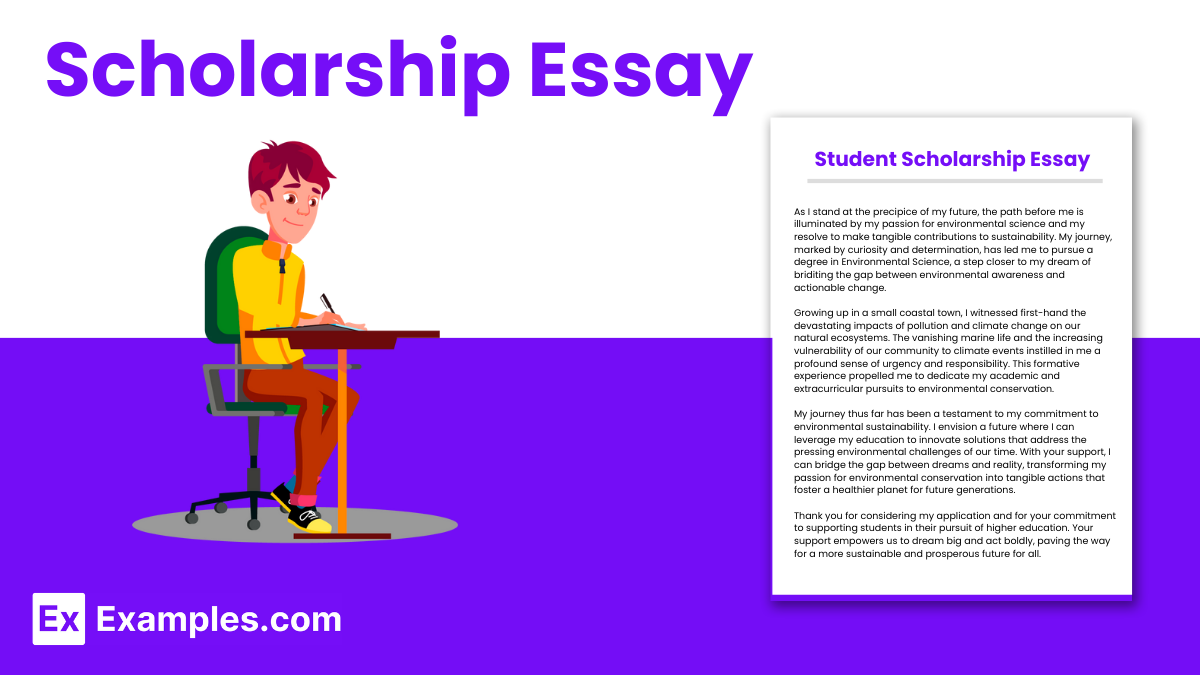
Essays are compositions of widescale function. Essay writing is also often a part of academic examinations or a composition that helps someone express his/her ideas to the world. Commonly, essays are written to pass school; however, there is a form of document that can also take someone into school.
What is a Scholarship Essay?
A scholarship essay is a personal statement written as part of a scholarship application. It’s designed to demonstrate your values, qualities, and suitability for the scholarship on offer, responding to specific prompts or questions posed by the scholarship provider. The essay is a critical component of the application process, allowing the selection committee to understand more about you, your background, and your educational goals.
Format of Scholarship Essay
- Introduction : Introduces the main idea or response to the essay prompt, includes a hook to grab the reader’s attention.
- Body Paragraphs : Provide detailed examples and experiences that showcase your qualifications, achievements, and how you align with the scholarship’s values.
- Conclusion : Summarizes your essay, reinforces how the scholarship will help you achieve your educational goals, and includes a thank you to the scholarship committee.
How Do You Write a Scholarship Essay?
- Understand the Topic : Grasp what the scholarship committee seeks in responses.
- Plan Your Essay : Brainstorm ideas that showcase your strengths and alignment with the scholarship’s goals.
- Compelling Introduction : Draw readers in with an engaging start that introduces your main point.
- Develop the Body : Use specific examples and experiences to demonstrate your qualifications and how you meet the scholarship criteria.
- Conclude Effectively : Summarize key points and express how the scholarship will aid your educational or career ambitions.
- Proofread : Ensure your essay is clear, error-free, and impactful.
Types of Scholarships Essay
- Merit-Based Essays : Focus on academic achievements, leadership qualities, or artistic talents.
- Need-Based Essays : Highlight financial need and how the scholarship would support educational goals.
- Personal Statement Essays : Reflect on personal experiences, challenges overcome, and personal growth.
- Career Goal Essays : Discuss professional aspirations and how education will help achieve them.
- Community Service Essays : Describe involvement in community service or volunteer work and its impact.
10+Scholarship Essay Examples
Scholarship self introduction essay.
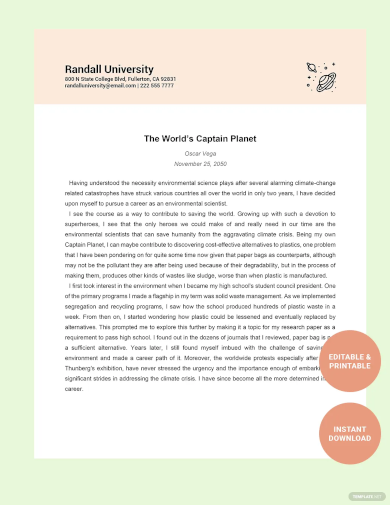
Sample Scholarship Essay in PDF
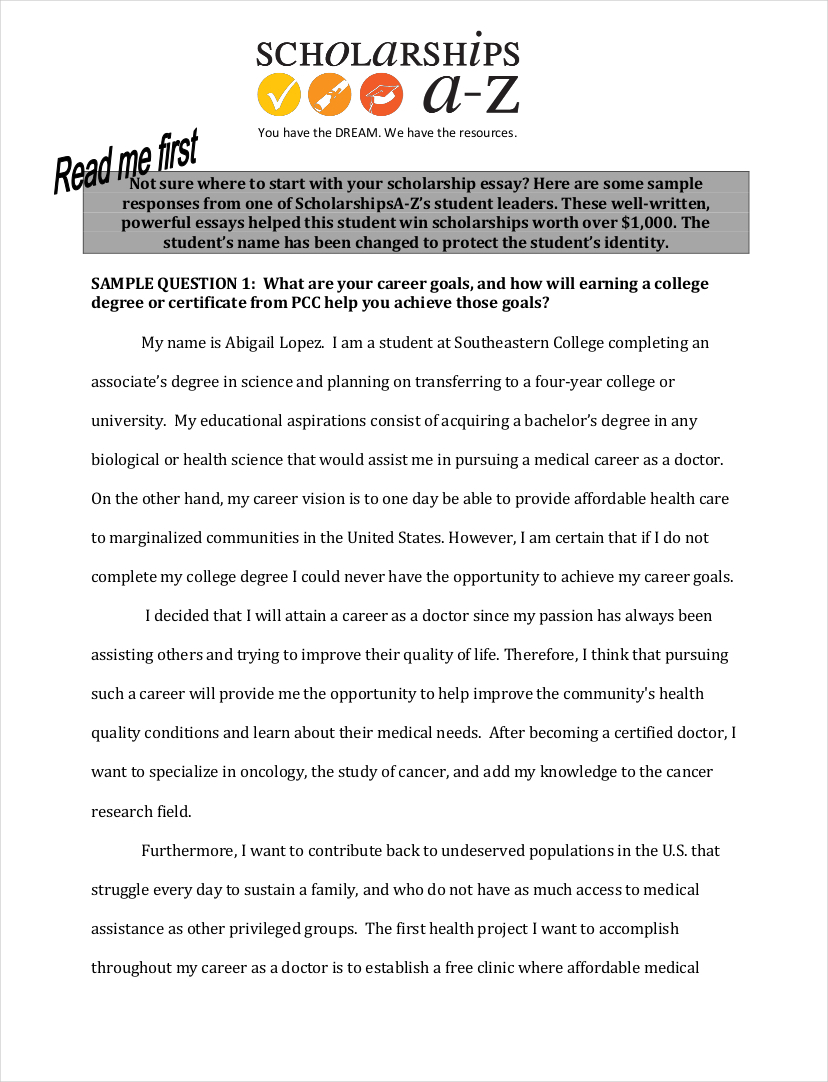
Scholarship Personal Essay Sample
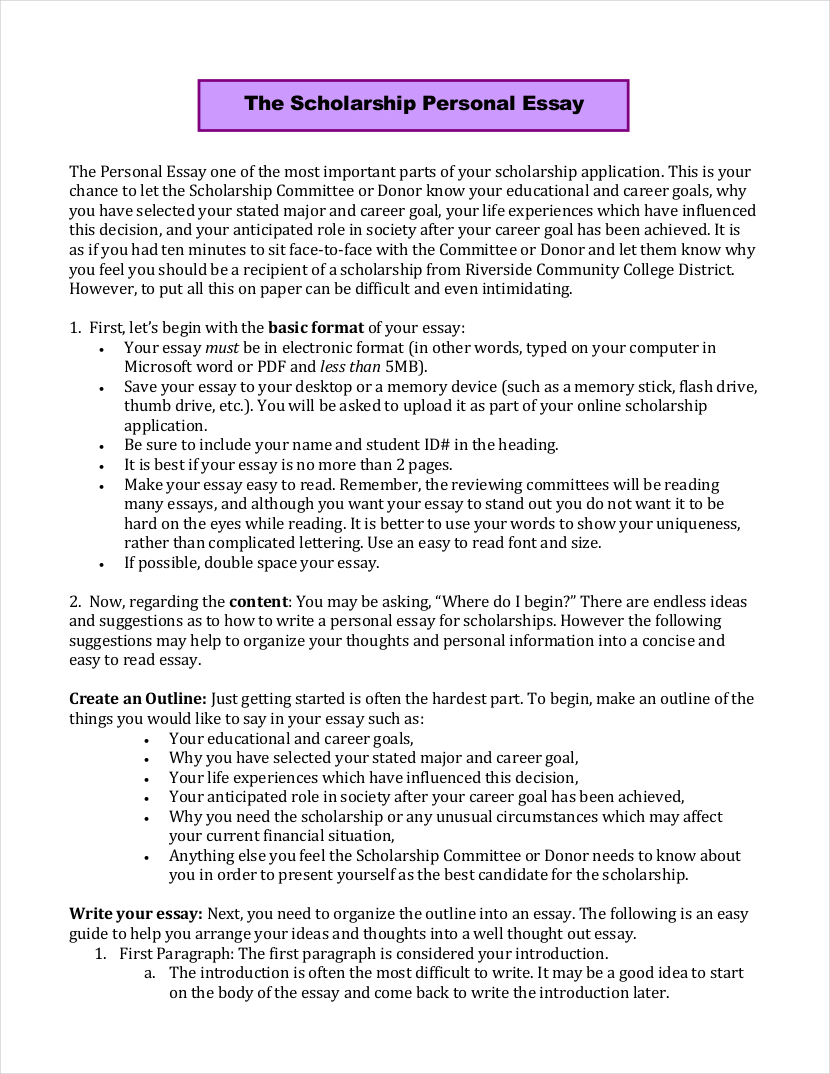
Education Scholarship Essay Sample
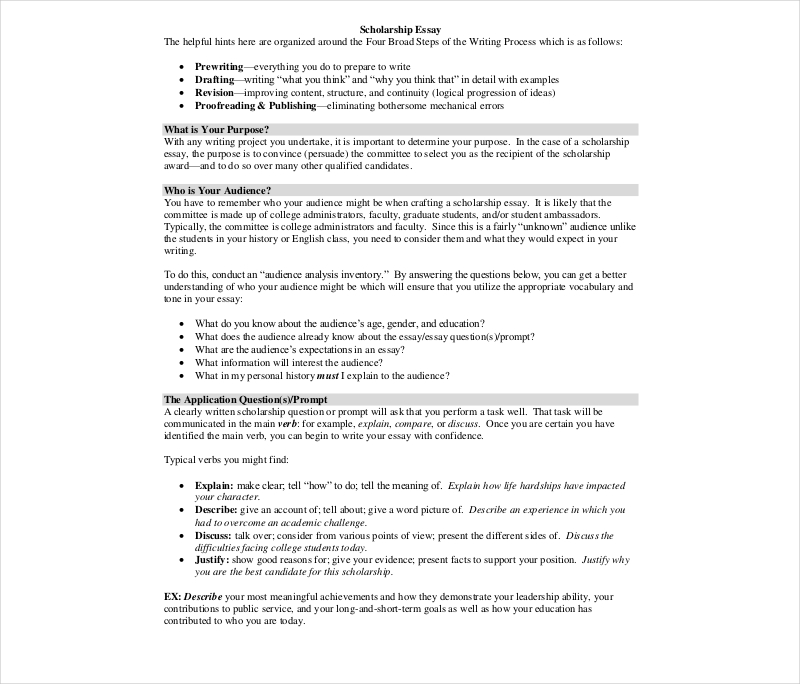
Scholarship Personal Statement Essay Example
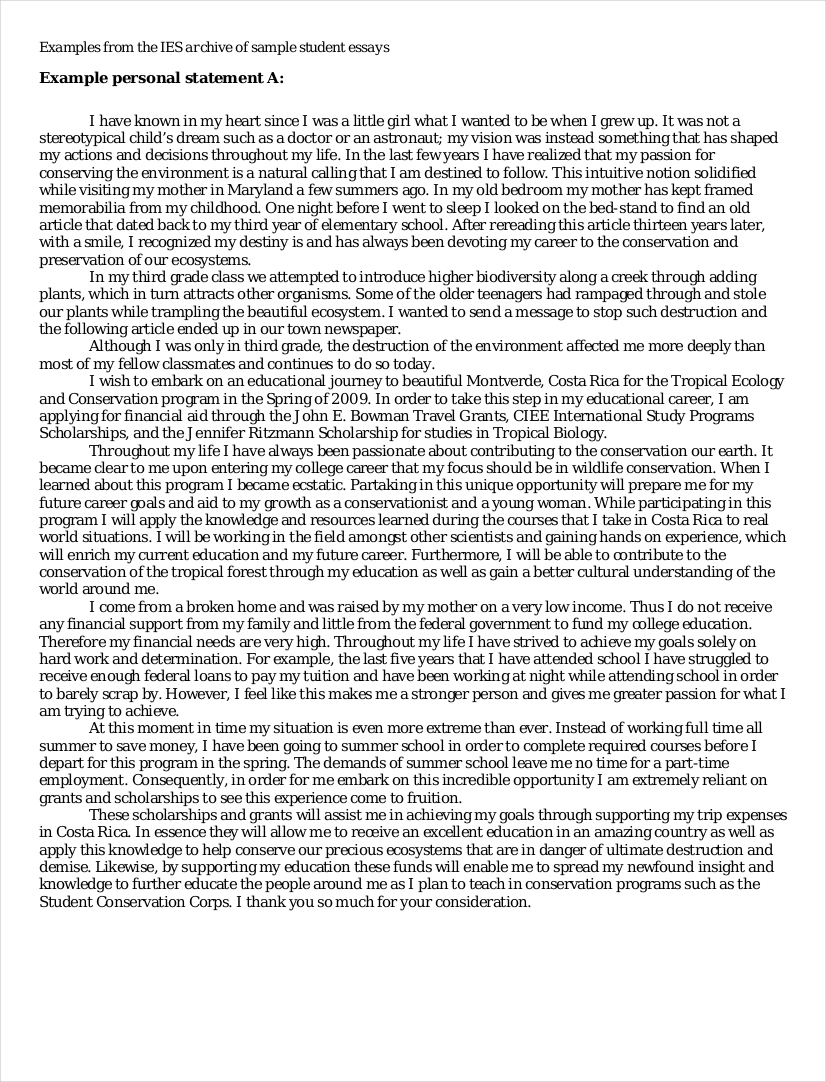
Student Scholarship Personal Statement Essay
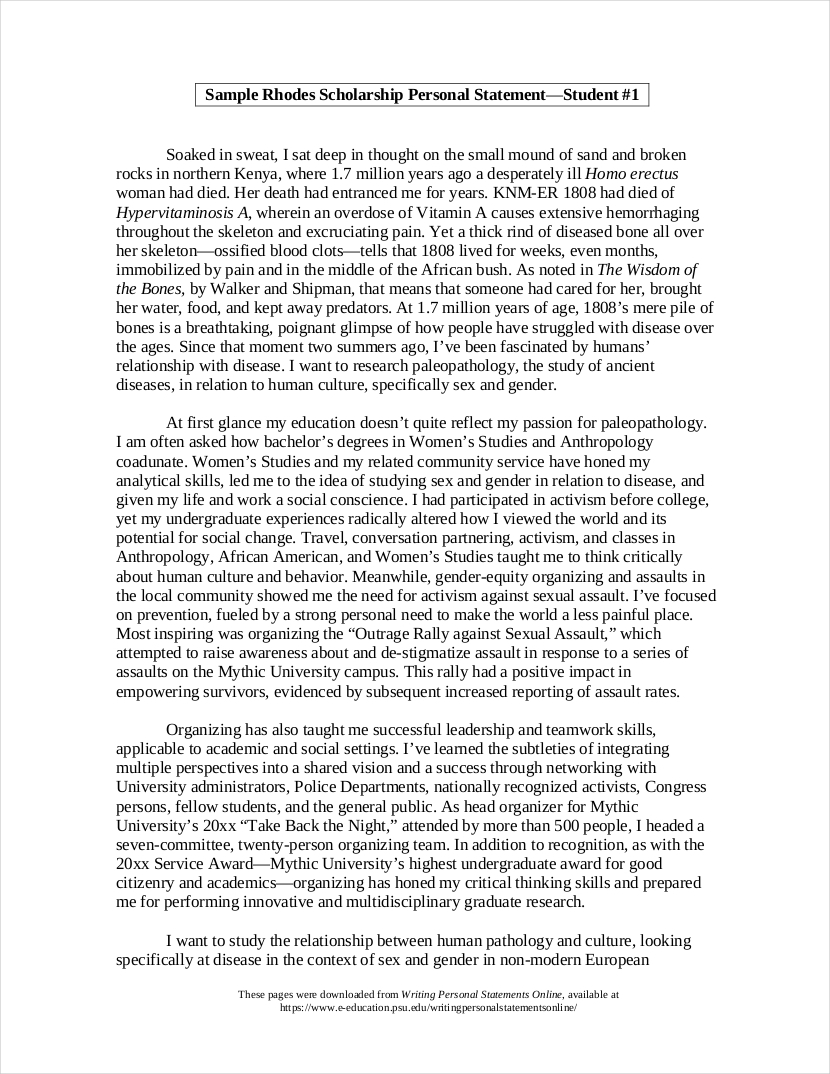
Scholarship Essay Example
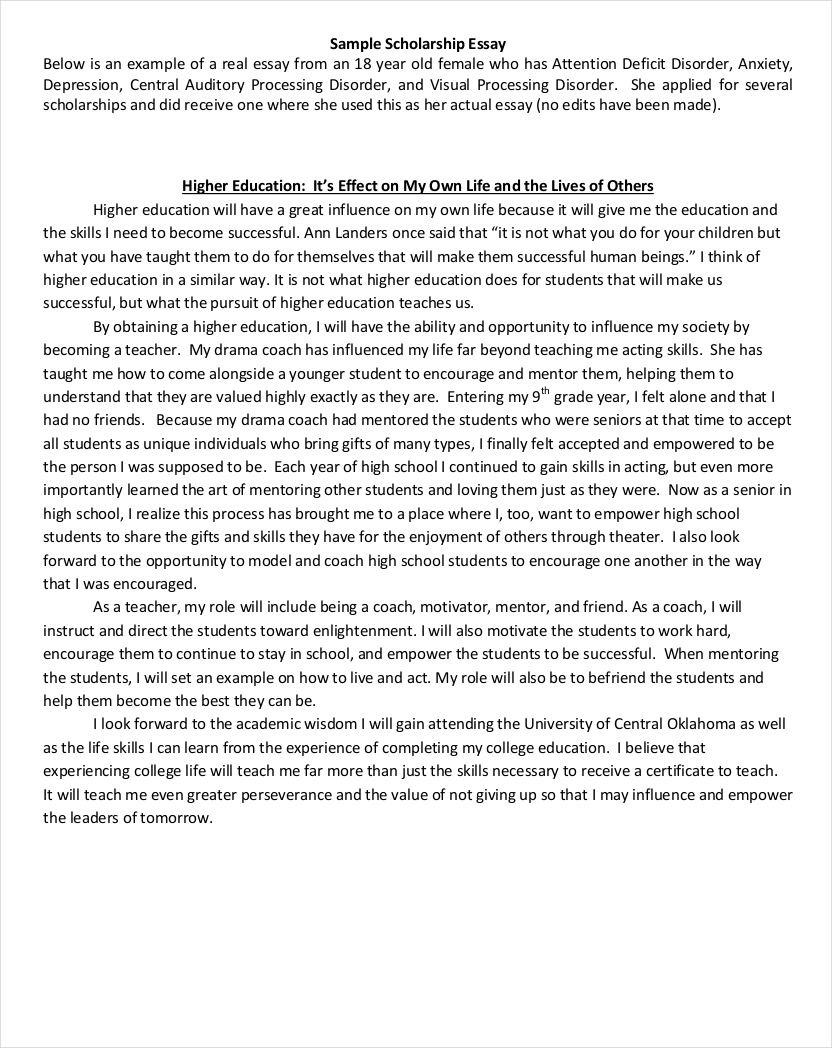
Field of Study Scholarship Essay
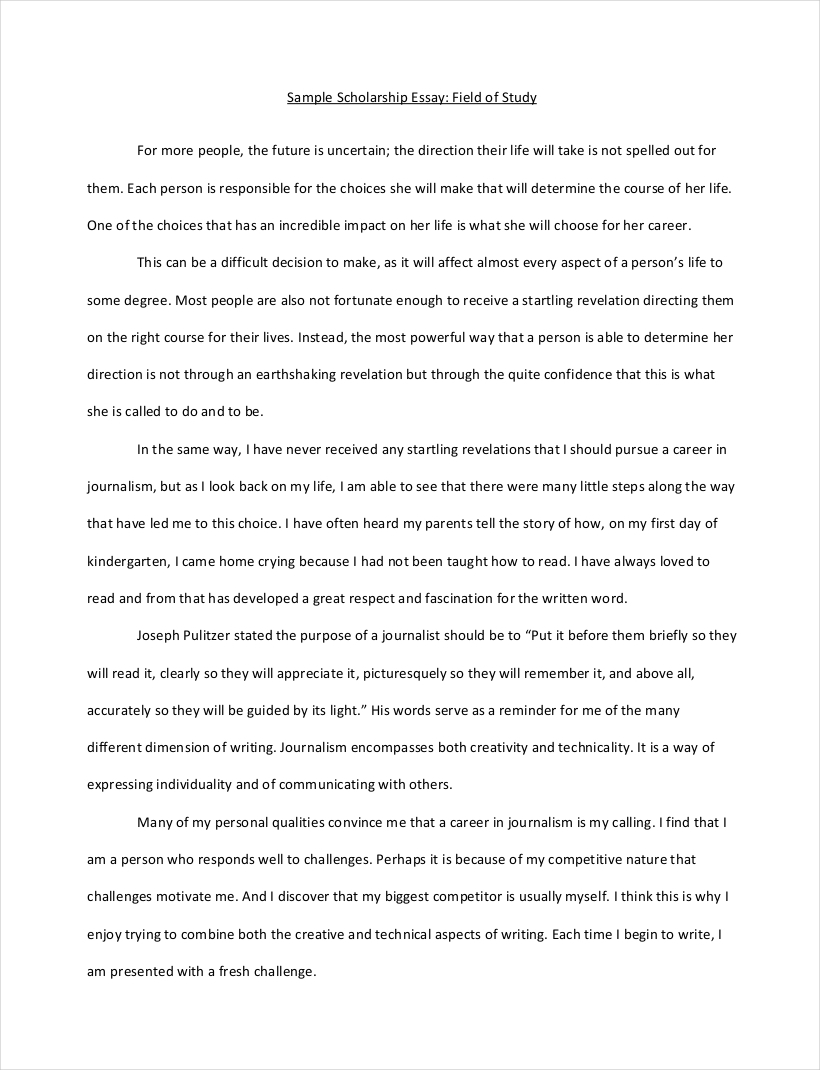
Sample Scholarship Essay Outline
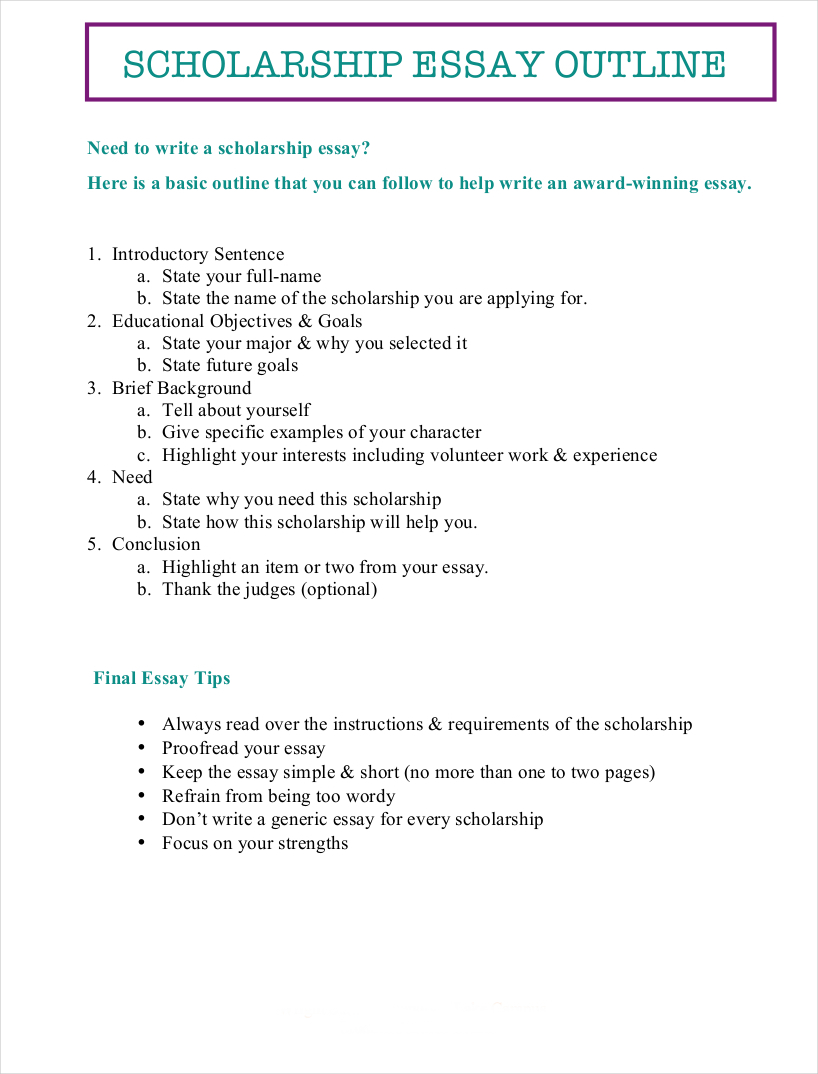
Simple Scholarship Essay Sample
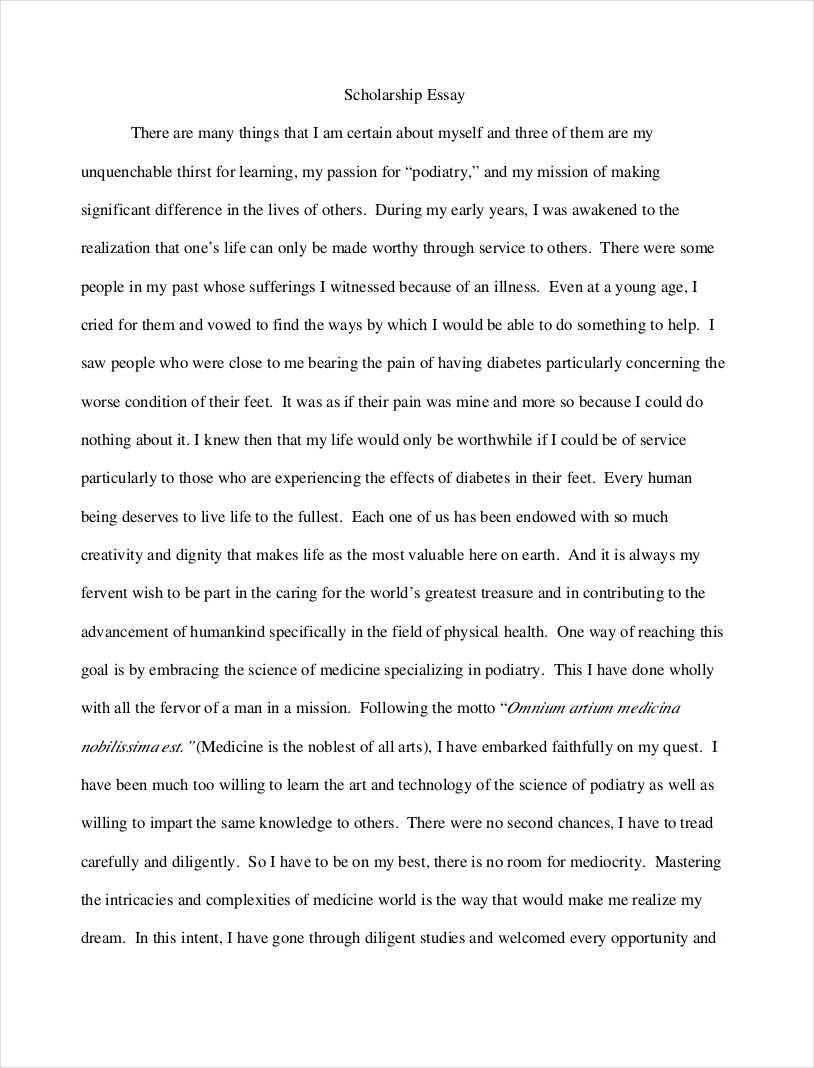
Sample Scholarship Essays
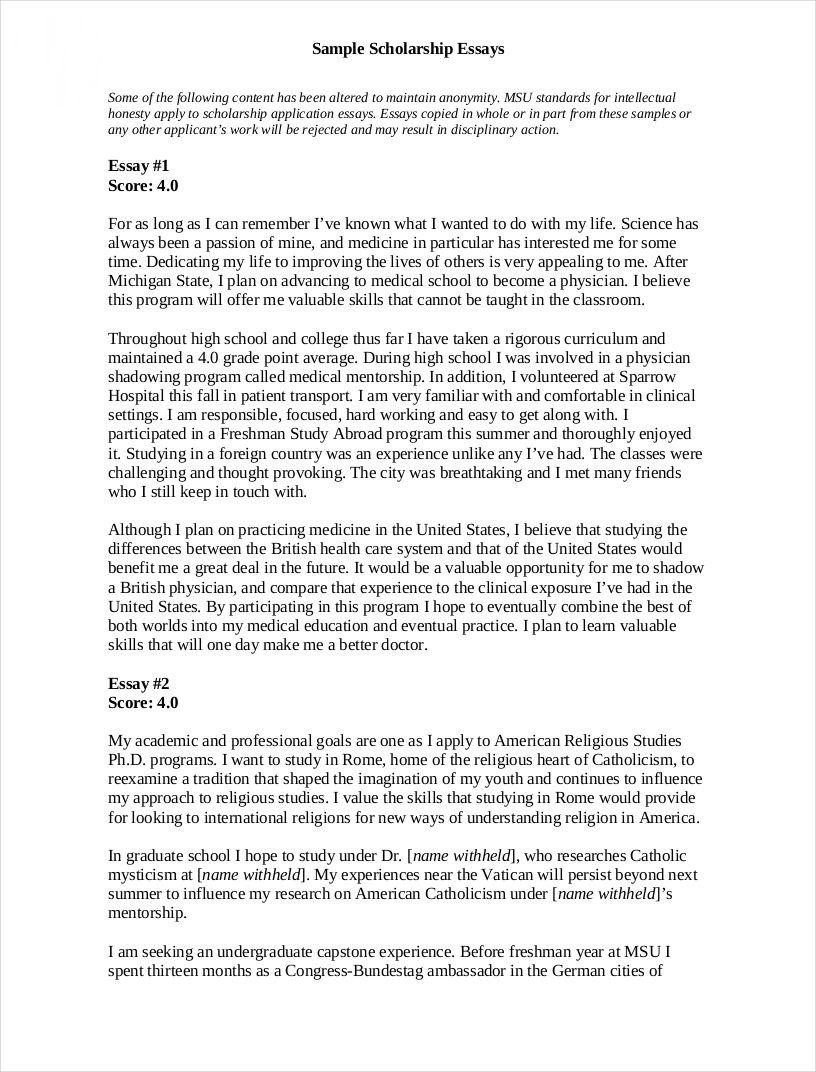
What do scholarship essays want to hear?
Scholarship essays seek to understand the applicant’s unique experiences, achievements, and aspirations. They want to hear a genuine, compelling story that showcases your character, resilience, and how you’ve overcome challenges. Essays should also reflect your academic and career goals, demonstrating how the scholarship will help achieve them.
What are the essay requirements for scholarships?
Essay requirements for scholarships vary but typically include a word limit, specific formatting guidelines (e.g., font type, size), and a prompt or theme to address. They may ask you to discuss personal achievements, challenges you’ve overcome, your career goals, or why you deserve the scholarship. Always follow the provided instructions carefully.
How do you start a strong scholarship essay?
To start a strong scholarship essay, open with an engaging hook that captures the reader’s attention. This could be an intriguing question, a surprising fact, or a brief anecdote related to the essay prompt. The goal is to make the scholarship committee want to read more about you and what you have to say.
What should be the first sentence of a scholarship essay?
The first sentence of a scholarship essay should be captivating and thought-provoking. It could introduce a pivotal moment, a personal insight, or a question that hints at the essay’s theme. This sentence sets the tone for your essay and encourages the reader to continue reading.
Do I put my name on a scholarship essay?
Whether you put your name on a scholarship essay depends on the specific instructions provided by the scholarship provider. Some may request that you include your name and other identifying details, while others may prefer anonymous submissions for unbiased evaluation. Always follow the application guidelines
What is the importance of a scholarship essay?
The reason why it is essential for you to make sure that you will create a comprehensive and detailed scholarship essay is due to the benefits that it can provide to your scholarship application. Some of the importance of a scholarship essay include the following: it can help the committee know more about you , it can showcase your writing skills and other abilities.
How to format your scholarship essay?
Aside from the content of your scholarship essay, its outline format and choosing what type of format essay you use like, MLA format essay , APA essay , or even Chicago style format are also of importance. Be aware of your word count. Do not use any fancy fonts as it can make the essay look informal. Make sure that your font size can make your discussion easy to read. Your margin should be an inch from the document’s top, bottom, and sides. The margin that you will use in the document can play a big part in the overall appearance of the letter.
How to write a 500 word essay?
Be thoroughly acquainted with the directions in your essay, completely comprehend the essay prompt, identify important points and keywords, compose a compelling introduction, craft an interesting body, remarkably close your scholarship essay, and proofread.
A scholarship essay is an important document that is used in the processes of a scholarship application. This letter may be simple but it can provide a lot of difference with regards the decision on whether an individual will be approved for a scholarship grant or not. A scholarship essay is a composition written by an applicant to avail the perks of a certain education-supporting program. Considering that this document will be one of the bases of one’s admission, facilitators of the scholarship program you are applying for may give you specific instructions regarding the format of your essay.
Text prompt
- Instructive
- Professional
Crafting Your Winning Scholarship Essay: Essential Tips
How to Start Your Scholarship Essay: Engaging Introductions
Overcoming Obstacles: A Key Theme for Scholarship Essays
Personal Growth Stories: Perfect for Scholarship Essays
Why I Deserve This Scholarship: Essay Writing Strategies
Educational Goals and Your Scholarship Essay: A Guide
Leadership Experiences: Highlighting Them in Scholarship Essays
Community Service Impact on Scholarship Essay Success
Scholarship Essay on Career Aspirations: Mapping Your Future
Creative Scholarship Essay Ideas: Standing Out from the Crowd
Scholarship Essay Examples
With college tuition costs rising each year, many students apply for merit scholarships to help make college more affordable. However, merit scholarships can be competitive—and that’s where our scholarship essay examples come in. By reading our scholarship essay examples, you can learn what it takes to write an award-winning essay.
Scholarships are an excellent opportunity for students to lessen their college tuition costs. Most merit scholarships require a brief application, usually including one or more essays. Below, we’ve rounded up our best scholarship essay examples.
Reading winning scholarship essay examples, especially scholarship essay examples about yourself, can help you begin the scholarship essay process. By reviewing essay examples, you can learn how to craft a strong essay. You’ll also get a better sense of what scholarship committees look for when they review applications.
In this guide to Scholarship Essay Examples, you’ll find tips on how to write the best scholarship essay, as well as:
- Various scholarship essay examples about yourself
- A strong scholarship essay sample about why I deserve the scholarship
- Scholarship essay examples about financial need, and more!
We’ve included scholarship essay examples specific to schools, including UC Berkeley, as well as specific programs, like the SHPE scholarship. We’ll also discuss the different types of scholarships you’ll find on your scholarship search.
Now, before we jump into our essay examples, let’s learn more about getting scholarship money for college.
What is a scholarship essay?
A scholarship essay is an essay you’ll include in your merit scholarship applications. In many ways, your scholarship essays might resemble your college essays. So, the scholarship essay format should seem familiar.
The best scholarship essays will highlight who you are and why you deserve money for college. Scholarship essay prompts will ask you to include various information, from details about your background to explanations of why you deserve a scholarship.
Crafting a compelling, well-written essay can help you win substantial financial awards to help cover your college tuition costs. However, not all scholarship essays are the same. Later on, we’ll review different winning scholarship essay examples to show you what kind of essays you’ll write in your application process.
Types of Scholarships
There are many different types of scholarships available to students. You can find a variety of scholarship opportunities on scholarships websites. The earlier you start your scholarship search, the more scholarships you’ll find.
While some scholarship applications accept applicants of all backgrounds and abilities, some have very specific eligibility guidelines. So, you may not be eligible for every scholarship. If you’re not sure whether or not you’re eligible, you can find eligibility information on most scholarships websites.
Here are a few different scholarship types you may come across in your scholarship search:
- Academic scholarships
- Merit scholarships
- Essay competitions
- Community service scholarships
- Military scholarships
Scholarship essay prompts will differ across programs. As you’ll see in our winning scholarship essay examples, the prompts can vary in word count and complexity. We’ll provide you with descriptive essay examples to help you get an idea of what to expect.
Merit-Based Scholarships
Most scholarships we’ll highlight in this article are merit-based scholarships . A merit-based scholarship is money awarded by a college or community organization based on your academic achievements.
In contrast, a need-based scholarship is awarded based on a student’s financial need. If you are applying for financial aid, be sure to check out our scholarship essay examples about financial need. You’ll find both merit- and need-based scholarships on your scholarship search.
To qualify for a merit-based scholarship, you generally must meet specific criteria. Scholarship committees look at your grades, academic achievements, extracurriculars, and even test scores. Need-based scholarships can have similar requirements, but they’re primarily concerned with your family’s financial status.
There are many merit-based scholarships available to help students afford college, including:
- National merit scholarships
- Gates Scholarship
- Jack Kent Cooke Scholarship
- Robertson Scholarship
Check out our guides on these popular merit-based scholarships for more details. There, you’ll find tips on how to write a winning essay. Our descriptive essay examples can also help prepare you to apply to these programs After all, while prompts vary, the scholarship essay format remains fairly standard.
Finding scholarships
In this guide, we’ll highlight some scholarships you may be eligible for. However, make sure to check out the rest of our resources to help you approach the scholarship search.
Some scholarships we’ll discuss include:
- QuestBridge scholarship : helps low-income students attend elite colleges
- Park scholarships : for students attending NC State University
- SHPE scholarship : offers financial assistance for Hispanic students interested in STEM degrees.
Scholarship essay examples about financial need will help you prepare for your scholarship applications. For instance, if you apply for the SHPE scholarship, you’ll include a lot of details about your background.
You can also use scholarship search portals or scholarships websites to find other scholarships you may be eligible for.
How do you write a scholarship essay?
While scholarship essay prompts may differ, you’ll usually stick to the same general scholarship essay format.
One resource that can help you write the best scholarship essays and find money for college is Sallie Mae. Sallie Mae is a private lender offering undergraduate, graduate, and professional student loans. They also grant scholarships and provide aspiring college students with a scholarship search portal on their scholarships websites. Here’s what they have to say about having a winning scholarship essay format.
Organization
When writing a scholarship essay, it’s best to start with a scholarship essay format that organizes your thoughts. This will allow you to follow a plan that clearly and concisely gets your points across. You should begin your essay with a solid introduction. Then, introduce your supporting arguments and add an appropriate conclusion.
A good scholarship essay clearly states why you deserve to win money for college with evidence to back up your argument. You’ll see how to do this in our scholarship essay sample about why I deserve the scholarship. The best scholarship essays will be original and honest. It should be written in an inspirational and positive tone, highlighting your strengths and capabilities.
When you feel like you have put your best foot forward, you should ask others for their feedback. This can be from a teacher, counselor, or one of our advisors here at CollegeAdvisor! Proofread your final essay and make sure you’ve caught any spelling and grammatical errors before submitting your application.
Up next, we’ll get into our descriptive essay examples and the different scholarship essay prompts they responded to.
By looking at scholarship essay examples, you can learn what exactly makes a good essay. So, let’s look at some descriptive essay examples written by students looking to secure money for college.
First, we will walk you through scholarship essay examples about yourself. Then, we’ll look at a scholarship essay sample about why I deserve the scholarship. Lastly, we will provide you with scholarship essay examples about financial need. Remember to keep these scholarship essay examples in mind when writing essays of your own!
Scholarship Essay Examples About Yourself
Let’s take a closer look at some scholarship essay examples about yourself.
Scholarship essay prompts vary quite a bit, so make sure you understand what the prompt really asks of you. That way, you can answer the question or address the prompt in its entirety.
Some scholarship essay prompts may ask how the scholarship will make a difference for you. They may also ask about any contributions you have made to your community.
Ready to look at some winning scholarship essay examples? Check out these scholarship essay examples below.
The first of our scholarship essays is for Phi Sigma Rho. Here’s the prompt:
How do you promote Phi Sigma Rho and STEM on your campus or in your community? (300 words Max)
Phi sigma rho scholarship essay.
In my campus and community, I strive to promote Phi Sigma Rho and STEM by promoting Phi Rho’s values and sharing my experiences and passion for Phi Rho.
My involvement in the Women in Engineering Program (WEP) and Society of Women Engineers (SWE) has allowed me the opportunity to promote Phi Rho and STEM. These activities have given me insight into how to successfully create a network that will support and encourage women in engineering to continue their careers.
Within WEP, I served as a sophomore orientation leader (Envoy), mentoring first-year women and assisting with program logistics. As an envoy, I was able to promote Phi Rho ideals of friendship and encouragement. I was also able to informally recruit for Phi Rho by sharing my experiences and passion for the sorority.
Within SWE, I was the Internal Relations Chair my freshmen year and am the Director of Member Engagement this year. Both roles are related to member engagement, allowing me to promote friendship within engineering. Member engagement is important for creating a community among female engineers. Similar to my envoy position, my leadership within SWE has allowed me to share my love for Phi Rho.
Additionally, my volunteer experience with Engineering Ambassadors (EA), a STEM outreach group, has allowed me to promote STEM in the community. In EA, I give presentations on engineering, speak on panels, and lead hands-on activities for K-12 students. EA has taught me strategies to promote STEM to children and teenagers.
Because of Phi Sigma Rho, I have the confidence to inspire and encourage the next generation of female engineers. I hold the values of scholarship, friendship, and encouragement in the highest regard and strive to embody those in every leadership position and volunteer role. Through SWE, WEP, and EA, I have promoted Phi Sigma Rho, its values, and STEM as a whole in both my campus and community.
This is, in many ways, a scholarship essay sample about why I deserve the scholarship. The writer clearly highlights how they’ve engaged with Phi Sigma Rho and how their values align with those of the organization. The writer also provides specific examples of their leadership positions, skills, and accolades.
The next two of our scholarship essay examples about yourself are for the SHPE scholarship. Here they are:
SHPE Scholarship essay example #1
Essay prompt:.
Summarize your life experiences and any challenges that have impacted your path to higher education. (250 Words)
Essay Example:
I vividly remember the first day of First Grade because I didn’t know the Pledge of Allegiance like the rest of my classmates. Growing up in a Hispanic household, I had never learned what the pledge was. This was the beginning of several years of disconnect.
From receiving weird looks when I told classmates my family opened Christmas gifts at midnight, to my parents’ confusion when I didn’t want them to speak Spanish in public, both sides of my life never understood the other. As a result, I always felt out of place in school, like I was behind in some way because I didn’t share the same upbringing as my classmates. In contrast, academics felt like a level playing field, something we were all learning together in the same way.
While I couldn’t tell you who won the super bowl, I could do mathematics or read just as well, if not better, than my classmates. Socially, I always felt out of place, but academically I was always comfortable, and as a result, I tried to excel in that area of my life. That desire to succeed created the relentless work ethic I have today and the appreciation I have for education.
Despite the lack of emphasis from my parents on schoolwork, I developed this sense of responsibility and persistence to pursue an education. Although my family’s Hispanic culture made my life difficult when I was younger, it made me a more resilient person.
More scholarship essay examples
Shpe scholarship essay example #2.
Discuss your educational and career aspirations as well as your ability to complete and achieve these goals. (250 words)
Using a degree in engineering, I hope to work on improving sustainability and efficiency in the aerospace industry by creating cheaper, safer, and more environmentally-conscious options.
Recently, Pratt and Whitney designed an engine that is 16% more efficient and will release 3600 less metric tons per airplane per year. Excitingly, it also greatly reduces the noise footprint of an airplane. Innovations like these will allow the aerospace industry to evolve and improve while reducing negative environmental impact. I hope to work at the forefront of this innovation, pushing the boundaries of improved engine performance and efficiency.
Last semester, I started working in the Experimental and Computational Convection Laboratory on campus to learn more about turbines. Some current projects in the lab involve new turbine cooling techniques and additive manufactured heat exchangers. Throughout the course of my undergraduate career, I hope to learn more about the barriers facing improved engine and turbine efficiency. Following undergraduate, I plan to attend graduate school to gain a deeper knowledge of these topics. Following graduate school, I may go into industry working on turbines and jet engines. Due to beginning research early, I believe graduate school is an attainable educational goal.
The potential ability to make a difference in the environmental impact of the aerospace industry is exciting. To accomplish this, I know studying Mechanical Engineering will give me the skills necessary to fulfill my career goals.
Both of these scholarship essay examples use specific details to highlight the writer’s strengths, experiences, and accolades. In reading these winning scholarship essay examples, we get a sense of who the writer is both as a person and as a student.
Scholarship Essay Sample about “Why I deserve the scholarship”
Another scholarship essay prompt you may come across is “why I deserve this scholarship.” A good scholarship essay clearly highlights why you deserve to win the scholarship and provides evidence to support your argument.
Below, you’ll find scholarship essay samples about why I deserve the scholarship. You can use these as a guide to help you tackle your own scholarship essays.
Here’s the first of our scholarship essay examples, which was used for the Park Scholarship:
The Park Scholarship is an investment in the potential of young people. It prepares scholars to make lifelong contributions to communities, states, nations, and the world. Tell us a story that illustrates your potential to make these lifelong contributions. (What have you done that should compel us to invest in you?) (Max. 3,990 characters including spaces.)
Park scholarship essay example.
Coming from a Venezuelan family, I have always been able to connect with total strangers through Spanish. Whether I’m eating at a restaurant or volunteering, I am constantly stumbling upon other Spanish speakers. The ability to converse in their language allows me to bond with them in a way I couldn’t in English, something I do not take for granted.
Because of my experience, I believe that learning a foreign language is an incredibly important skill. Being able to speak in a second language allows a person to understand another community and reach out to people within that community. Additionally, speaking a second language assists in appreciating other cultures. This appreciation is important for fostering open-mindedness, something America as a whole struggles with today.
In my school district, foreign language classes are not offered until late middle school. Once in high school, many students drop the class. In addition, those who stay in the class often find that the classes provide little more than a basic understanding of the language and then become discouraged in their learning. On a larger scale, this issue affects America as a whole. Second language programs often come second in terms of funding and planning and are not encouraged as rigorously as other academic courses. As a result, many Americans are ignorant to the benefits of bilingualism and are unable to understand the viewpoint of those who are multilingual.
After my freshman year of high school, my frustration with my community’s lack of priority for second language learning culminated in my desire to take some sort of action to promote foreign language education. In my sophomore year, a classmate and I created and ran an introductory Spanish program, Spanish in the Spring, at my local library for young children in the district. I spent hours at home creating lesson plans, activities, themes, and advertisements for the program. I placed heavy emphasis on cultural aspects and the importance of the Spanish language in America and the world as a whole.
My purpose for this program was to introduce children at a young age to learning a foreign language, so their desire to learn would continue throughout their life. Through the program, I was also able to share my belief of the importance of learning a second language with the children, as well as their parents. After the final day of the program, I was thrilled when one parent mentioned their desire to learn a foreign language program themself. I felt that if I made an impact on one person or family, the entire program was worthwhile.
Unfortunately, this past spring I was unable to continue the Spanish in the Spring program due to library scheduling restraints. However, I hopefully plan to offer the program again this spring with some changes that will improve and expand the experience. One of these changes will include the immersion of parents into the experience to encourage foreign language education as a family activity.
While this program was only offered once, the impact was immeasurable, for the children, for the cause of foreign language education, and for me.
This is another scholarship essay sample about why I deserve the scholarship. In it, the writer clearly and directly answers the prompt—that is, they highlight their potential to make a lifelong impact on members of their community.
Ready for another scholarship essay example? Here’s the next one:
How will a ScholarSHPE impact your life and education? (200 Words)
Shpe scholarship essay example.
Receiving a ScholarSHPE will give me the gift of time and opportunities. My parents are unable to support me financially throughout college due to large amounts of accrued debt. A ScholarSHPE will reduce my financial stress and allow me to improve my overall health as a result. It will also prevent the need to work several hours a week at a part-time job to pay for tuition, books, and living expenses, which will limit what I can do academically and outside of class. A ScholarSHPE will allow me to spend more time on research pursuits, engineering extracurriculars, volunteer work, and school work, instead of long hours at a part-time job.
This essay sample is fairly straightforward. In it, the writer follows a clear scholarship essay format, explicitly answering the prompt.
UC Berkeley Scholarships essay examples
Let’s look at some school-specific merit scholarship essay examples.
At the University of California – Berkeley , students can apply for a variety of merit scholarships. These scholarships can help offset the cost of UC Berkeley tuition.
Below, we’ve included various scholarship essay examples for the UC Berkeley scholarships. These UC Berkeley scholarships can help students cover their college tuition costs. This can make the UC Berkeley tuition less of a barrier for students hoping to attend.
You’ll find a variety of UC Berkeley scholarships that can help you afford UC Berkeley tuition. Available UC Berkeley scholarships include:
- Berkeley Undergraduate Scholarship
- Fiat Lux Scholarship
- Middle Class Scholarship
- Regents’ and Chancellor’s Scholarship
These are just a few ways to cover the cost of UC Berkeley tuition. UC Berkeley students also receive more than $10 million per year in outside scholarships to cover college tuition costs. If you are interested in exploring non-UC Berkeley scholarships, check out this list of outside scholarship resources .
To help you get started, check out our winning UC Berkeley scholarship essay examples. The authors of these scholarship essay examples about financial need all won money to help cover their UC Berkeley tuition.
UC Berkeley scholarship essay examples
I am grateful to realize how fortunate I am today. All the loved ones around me and their acts of kindness have given me such a great life. I also realize the sacrifices that those around me have had to give up in order for me to succeed. It is because of this that I have realized what “paying it forward” truly means. I have been given the opportunity to make an impact in my community and I have fully taken advantage of this opportunity. I have been a volunteer for the Buddyball Sports Organization, which is a non-profit sports organization dedicated to providing the opportunity for children with developmental disabilities to play sports.
Growing up, watching and playing sports has been one of my greatest pleasures of life, so teaching these less fortunate kids has been something I have enjoyed doing every single weekend. On top of this, I am also both a volunteer at the South Orangetown Ambulance Corps and the Nyack Hospital. With the desire to pursue a career in the medical field, volunteering at these places has given me a great idea of what my career could look like in the near future. While all of these volunteer activities have had a significant impact on me, little did I know that this summer would truly make a lasting difference in my life.
This past summer, my family decided to go on a vacation to India to visit my relatives. This was the first time in my life that I was going to India and this was only because my grandmother came down with Parkinson’s disease and was extremely sick. Little did I know at that time that my visit to India would be a life-changing experience. Never could have I imagined such a filthy village. Everywhere I looked, there was garbage and to make matters worse, no one seemed to do anything to try to ameliorate the repugnant image of my home country.
While I realized on my flight home that I was not going to be able to make a difference and help my community back in India, there was nothing stopping me from doing so right here in Rockland County, New York. When I was told that I would have the opportunity to help organize and direct “Make a Difference Rockland,” I joyfully accepted! Make a Difference Rockland is a free public meet and greet for all local non-profits and other government agencies in an attempt to promote different community service opportunities within the public. By gathering all the local non-profit organizations and giving them a chance to present themselves, people learn more about all of the local community service opportunities that are available to them. This way, the community will be able to recruit volunteers and will not have to suffer through calamitous conditions.
As one of the people in charge of organizing, it was my responsibility to adequately contact, invite and help prepare for hundreds of people. Once I gathered their contact information, I had to ask each one of these places if they would be interested in joining the fair. If interested, I had to also prepare a table for them to present themselves at the fair. The feeling of bringing all of these community service groups together brought me a feeling of happiness that I will never forget.
The best scholarship essays will teach the reader about who the writer is, what they care about, and why they deserve a scholarship. The essay above does just that—it highlights the writer’s background and describes how they give back to their community.
Next, let’s dig into a few more scholarship essay examples.
If you’re interested in more descriptive essay examples, keep reading.
Reading a ton of winning scholarship essay examples is a great way to pick up on what makes them winners. Over time, you’ll start to notice how the details, tone, and flow all work together to tell a story.
Below, you’ll find a few more scholarship essay examples. Our first one is from the NC Parks Scholarship. Here’s the prompt:
What do you do to serve your community? Why do you do the service that you do? What impact have you made? What challenges or insights have your service contributions given you? (Max. 3,990 characters including spaces.)
Community-focused scholarship essay example #1.
“What are the boys like in high school?” “Is it easy to get a boyfriend?” Sighing, the other frustrated leaders and I look at each other as we read the questions posed by the younger girls. Every year at Girls’ Night Out (GNO), a program that introduces and prepares eighth-grade girls for high school, the girls question the leaders about relationships and dating ad nauseum, irritating other leaders to the point of ignoring the questions.
Giving each question a careful and deliberate answer is often difficult, but instead of disregarding the issue, I try to offer my most sincere and honest advice. Originally, when I began as a group leader in the program I would give the same response, “You shouldn’t worry about boys. Instead, enjoy your friends, and do things you enjoy.” While that advice is true, it is often not the answer that will satisfy the girls. Through many years in the program, I have learned that advice is not “one size fits all”; it must be individualized to the person’s needs. Now, when faced with a question about dating, I respond with more questions before giving “words of wisdom”.
Many times I am able to understand the perspective of the middle school student, allowing me to give advice accordingly. Supplying proper advice about sensitive topics is one of the most impactful parts of GNO. As a role model and positive influence for the girls, I largely impact their ideas and perception of the environment when entering high school. In addition to teaching the students valuable lessons, volunteering at GNO has taught me that various perspectives may present themselves identically. To better understand those around me, it is important that I look beyond the surface for the other person’s viewpoint.
Beyond understanding other viewpoints from GNO, I have learned from other service that understanding a person’s situation is essential for providing exceptional assistance. Through Key Club, I volunteer many times a year at the local food pantry. As a volunteer, I help the recipients “shop” at the small grocery store using a point system. The process takes up a lot of time because shoppers do not always know what they want. Originally I thought this was a poor design. I believed it would be much more efficient to just hand out the food rather than giving out points and shopping with the food pantry recipients.
Upon expressing my opinion to one of the adult food pantry staff, he explained to me that the grocery store aspect of the store taught the recipients life skills. Additionally, by giving them autonomy over what food they “bought”, they retained a sort of independence, an important skill to have if they find themselves above the income level required to use the food pantry.
The next time I volunteered I took note of the skills presented. Budgeting of points, deciding whether or not they needed something, determining the quality of the fruit, and decision-making of choosing extra food or toiletries, were all skills that those above the poverty line have ingrained. For those who have been using food pantries and other assistance for prolonged periods of time, these skills are not so natural. As a result, teaching the people means after they no longer need the services of the food pantry, they have valuable skills necessary for their independence.
From this experience, I learned an important lesson: helping people is not just giving them what they need at the moment, but understanding what they will need in the future and providing that as well. After realizing this, I emphasize the abilities that the food pantry teaches whenever I dedicate my time. By doing that, I am positively affecting the development of those skills.
When reflecting on the various ways I have served my community, one thing stands out to me: I always understand another viewpoint or gain a new perspective afterwards. For me, the ability to look at something from different angles is an unparalleled talent, and one of the most important skills a person can have.
Describe your volunteer or community experience with SHPE or other organizations and any internships you have held. (250 Words)
Community-focused scholarship essay example #2.
In SHPE, I have been involved in planning the Penn State College of Engineering STEP-UP (Student Transition Engineering Program at University Park) Program as a chair. The STEP-UP program helps students from Penn State branch campuses smoothly transition to the University Park campus through a 3-day program in the spring. The program introduces them to engineering resources, other engineering students, and provides professional development. Due to COVID-19, this year it was held virtually.
Within the Society of Women Engineers and the Women in Engineering Program, I have volunteered at different STEM events in the community for elementary school students. I am also currently serving as an Envoy (a mentorship and logistical position) for the Women in Engineering Program Orientation. Additionally, I participate in many of SWE’s service events, such as donating and collecting donations, cleaning up areas on and around campus, and visiting nursing homes.
On campus, I am also involved with Engineering Ambassadors (EA), a group that does STEM outreach around Pennsylvania from the elementary school to high school level. EA goes virtually or in person to schools, does engineering presentations and activities, and answers questions.
Prior to COVID-19, I had secured an internship with Pratt and Whitney, however, they had to cancel their internship program. As a result, I was fortunate enough to obtain a Process Quality Engineering internship at Brentwood Industries for summer 2020.
Both of these scholarship essay examples highlight how the writers have given back to their communities. These winning scholarship essay examples highlight the writers’ strengths. In doing so, they highlight why these writers deserve help with college tuition costs.
Reflecting on scholarship essay format
As important as the content of your essay is, your scholarship essay format is equally important. As you write, be sure to adhere to the scholarship essay format guidelines provided to you.
However, there are some things all of the best scholarship essays have in common. Here are some general tips, tricks, and outlines to help you in your own writing process.
Three scholarship essay writing tips:
- Word counts are hard to adhere to, but the other applicants must adhere to them, too. Make sure every word counts.
- When you write a solid essay, you can repurpose some of your key points, including specific anecdotes and details, in other scholarship applications.
- Writing a good essay helps you solidify who you are and what you want. This sets you up for success in the scholarship application process and beyond.
Three essential elements to include in your essay:
- State your goals. Scholarship committees are investing in your future and your potential. To take a chance on you, they need to know your plan and what you want to do with your award.
- Establish an implicit or explicit link between your goals and the scholarship you are applying for. Describe to the committee how the specific scholarship will help you attain your goals. Give them a tangible reason as to why you deserve their investment.
- Share your story. Use personal details about your experiences that highlight your identity and objectives. How have you pursued your goals and prepared for your future? How will the scholarship help you going forward? Get personal and be honest.
Storytelling in your essay
Some of the best scholarship essays utilize good storytelling strategies. You should share the details of your personal story in a narrative, using a logical order. Remember, telling personal details about yourself and your goals does not mean simply restating your resume!
By the end of the essay, the scholarship committee should have an in-depth sense of why you applied. You should reveal:
- When and how you arrived at your future goals
- Your motivations to accomplish these objectives
- What traits or skills you have developed along the way
- The meaningful experiences that drive you to your goals
- Any personal challenges you have faced and how you have overcome them
- What has shaped you and your worldview
These details humanize you and show your complexity as a person and an applicant. It’s helpful to use anecdotes and personal experiences to give life to facts and details about yourself. Sharing real-life experiences will help make your essay more interesting and more fun to read.
Creating your scholarship essay format
Once you have thought about what you want to say, start thinking about your scholarship essay format. You may start by making a list of what your reader may be interested in:
- How you spend your time
- Your accomplishments
- What your passions are, etc.
Start by brainstorming everything you may want to include in your essay. Then, think about whether the stories you include support your arguments. Ask yourself, “What did I learn?” or “How did this get me closer to my goals?”. These reflections help the reader connect to your purpose for writing.
Make sure to organize your thoughts in a narrative order. However, there isn’t just one way to write an essay. So, don’t limit yourself to one version of your story. You may find yourself writing multiple drafts before you get to your final scholarship essay format.
Editing and proofreading your essay
When you think you have finished, be sure to proofread and edit to ensure it’s ready to be submitted. Check that you’ve adhered to all the scholarship essay format guidelines (like the word count).
Reviewing also includes getting input from others! An outside reader’s opinion can help you confirm your essay effectively communicates your ideas.
Tips for scholarship essays
You may notice some similarities between the scholarship essay examples about yourself we’ve provided. That’s because the authors of the best scholarship essays all use similar strategies to make their essays great.
Here are 5 tips from U.S. News to help you make all of your scholarship essays stand out:
Tips for writing stand-out scholarship essays
1. get personal and be specific.
The best scholarship essays will share an authentic story with impactful details. The key is to be yourself and not shy away from personal details. The more the committee gets to know about you, the more likely they are to invest in your future. You want your essay to offer a genuine, in-depth look into who you are as a person.
2. Tell a story
Your essay should be more than a collection of facts—it should tell a story. That means having a solid introduction that grabs the reader’s attention from the very start. Then, you should include a logical flow of experiences or details. By the end of your essay, you want your reader to have learned something valuable about you.
3. Tailor the scholarship essay to the prompt
Some of your scholarship essay prompts may be similar across different scholarship applications. However, it’s important that your essay is specific to each prompt and answers the question entirely. While you can repurpose an essay you’ve already written as inspiration or a starting point, be extra attentive when doing so.
4. Don’t tailor yourself to the reader
Many students fall into the trap of telling a story they think scholarship foundation committees want to hear. Instead, stay true to yourself as you craft your scholarship application essays. Don’t tell your reader what you think they want to hear—just tell them who you are.
5. Follow directions
This final tip may arguably be the most important. Above all else, students should follow instructions. This means adhering to the scholarship essay format guidelines and word count. It also means answering the essay prompt in its entirety. Application readers can be easily frustrated by a student’s failure to follow directions. This could reflect poorly on you and your essay in the long run.
Use these tips to guide you as you approach the scholarship essay format.
Scholarship Essay Examples – Final Thoughts
We hope our roundup of scholarship essay examples has shown you how to approach your scholarship applications. With rising college costs, scholarships should be a part of your college financial planning process. Take the time to do your own scholarship search based on your specific interests. You can find plenty of scholarships to apply to on scholarships websites and college financial aid pages. There are many different scholarships websites to help you with your search.
Save this guide
Feel free to save this guide and review our scholarship essay examples about yourself and about financial need. You can always look back on our scholarship essay sample about why I deserve the scholarship when writing your own essay.
Start with an outline that organizes your thoughts. Then, make sure your essay is clear and concise. Be original and honest, and include personal details and anecdotes when appropriate. State why you deserve to win the scholarship. Then, support your claim in a way that makes a scholarship committee invested in your future.
We’re here to help
Don’t forget to proofread your essay and ask others for their feedback. When in doubt, reach out to our advisors at CollegeAdvisor. Our team is always here to help support you find and apply for scholarships!
This article was written by Bailey Bennet. Looking for more admissions support? Click here to schedule a free meeting with one of our Admissions Specialists. During your meeting, our team will discuss your profile and help you find targeted ways to increase your admissions odds at top schools. We’ll also answer any questions and discuss how CollegeAdvisor.com can support you in the college application process.
Personalized and effective college advising for high school students.
- Advisor Application
- Popular Colleges
- Privacy Policy and Cookie Notice
- Student Login
- California Privacy Notice
- Terms and Conditions
- Your Privacy Choices
By using the College Advisor site and/or working with College Advisor, you agree to our updated Terms and Conditions and Privacy Policy , including an arbitration clause that covers any disputes relating to our policies and your use of our products and services.
- Grades 6-12
- School Leaders
Don't Miss the Grand Prize: A $2,500 Office Depot/OfficeMax Card!
10 Winning Scholarship Essay Examples From Real Students
Make your application shine.
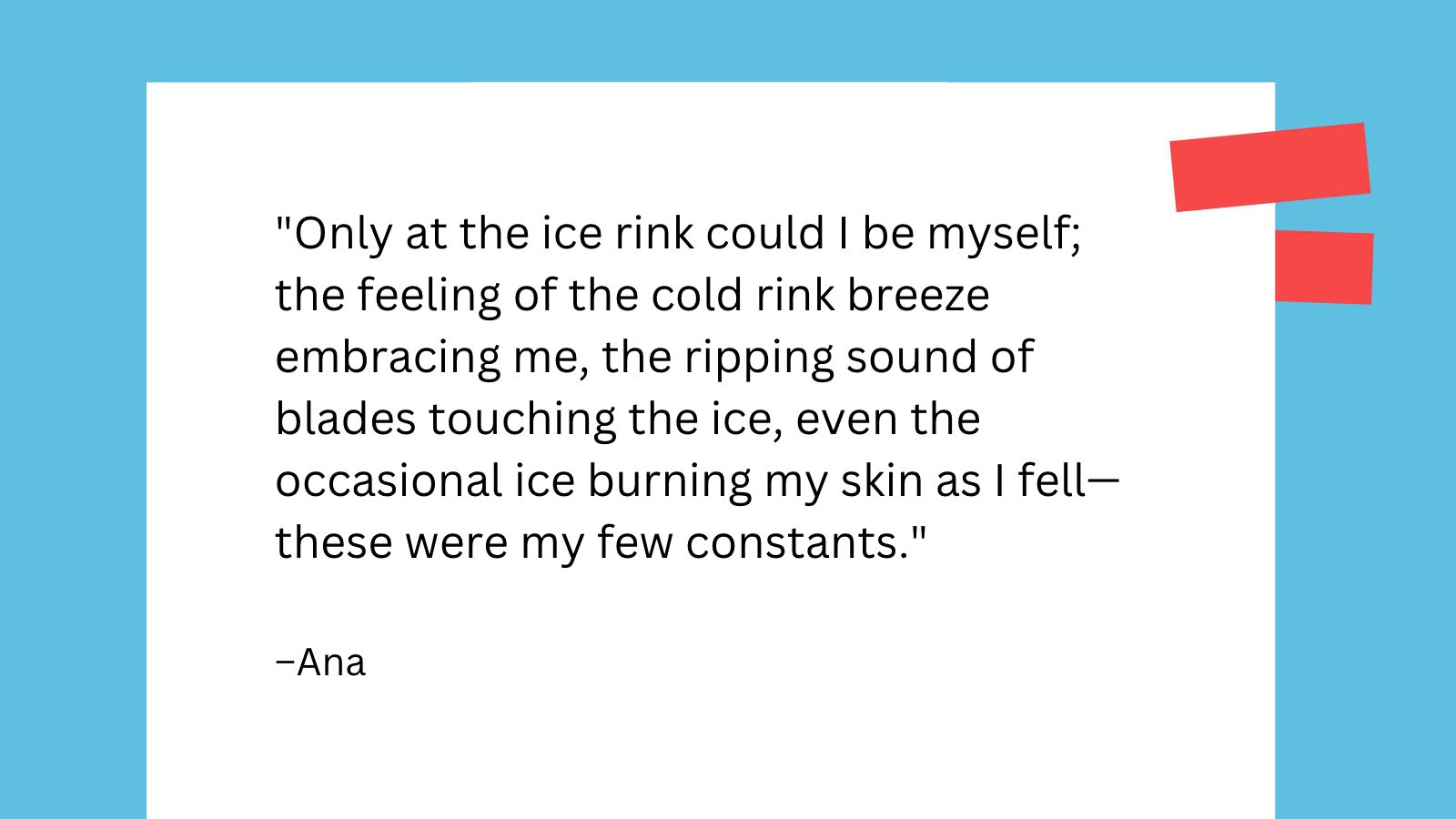
Writing a scholarship essay can be intimidating. The competition is fierce and the stakes are high, so students are bound to feel the pressure. It may be helpful, therefore, to look at essays that were successful. What did those students do to impress the committee? These scholarship essay examples will give you a better idea of how to make an application shine!
Tips for Writing a Scholarship Essay
We’ve put together a whole guide for how to write a scholarship essay , so if you haven’t read it already, definitely give it a look! In addition, here are some quick tips to help students get started.
Carefully read the rules
The last thing you need is to be disqualified from winning a scholarship because you didn’t do the right thing.
Start early
Don’t wait until the last minute to start researching and applying for scholarships. Give yourself plenty of time to work through the process.
Get to know the provider
Think of the scholarship provider as your target audience. You want to tailor your essay to impress them, so do your research. What kinds of candidates are they looking for? What causes do they support? Dig deep for the information you need!
Think about who you are, what you want to say, and how to appeal to the scholarship committee. Write everything down and then choose the best ideas.
The scholarship committee will be reviewing many applications. How can you make yours unforgettable? Highlight your strongest assets, share hard lessons if they showcase your growth as a person and/or student, and be honest. Never lie in a scholarship essay!
Be professional
Consider this the most important academic paper you’ve ever written. Don’t use slang or casual language. Submit a properly formatted essay that’s been well-edited and proofread by multiple people.
One last tip
Don’t reuse scholarship essays! Yes, it’s time-consuming, but students need to put the same effort into every application. Use the same process and it will get faster and easier every time!
Scholarship Essay Examples
Afc visionary scholarship essay by nicole kuznetsov.
Award Amount: $5,000
Essay prompt: Why do you want to go to college? Why is it important to you?
Why it was successful: The beauty of this essay is that it’s well-organized and simple. Nicole Kuznetsov chose to outline her story by using chronology and provided a clean, concise story following a linear path.
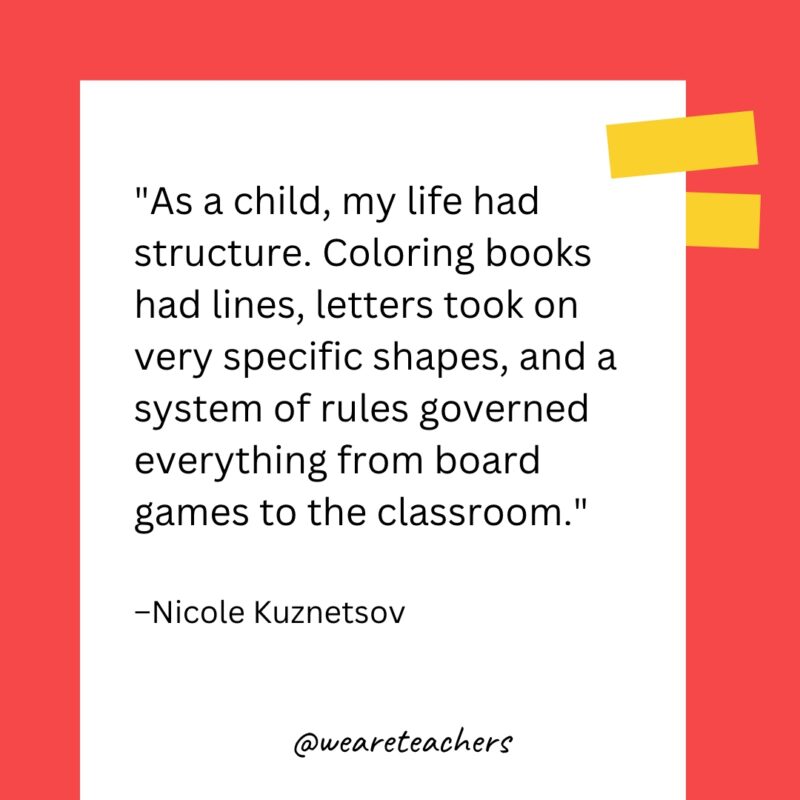
North Coast Section Foundation Scholarship Essay by Christine Fung
Award Amount: $1,000
Why it was successful: Christine Fung masterfully shared how her upbringing instilled strong values, a love for education, and a passion for medicine .
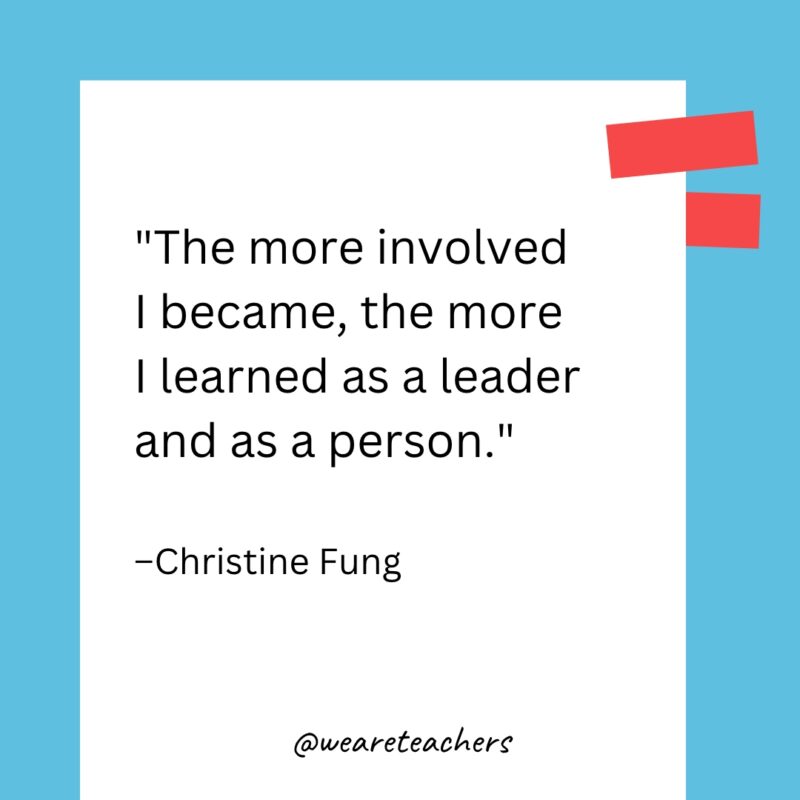
The Bill Browning Scholarship Essay by Gabby DeMott
Award Amount: $10,000
Essay prompt: Discuss an accomplishment, event, or realization that sparked a period of personal growth and a new understanding of yourself or others.
Why it was successful: Gabby DeMott shared her experiences with personal growth and overcoming fears in Germany. She also appealed to the very human feeling of wanting to belong in a way that was inspiring.
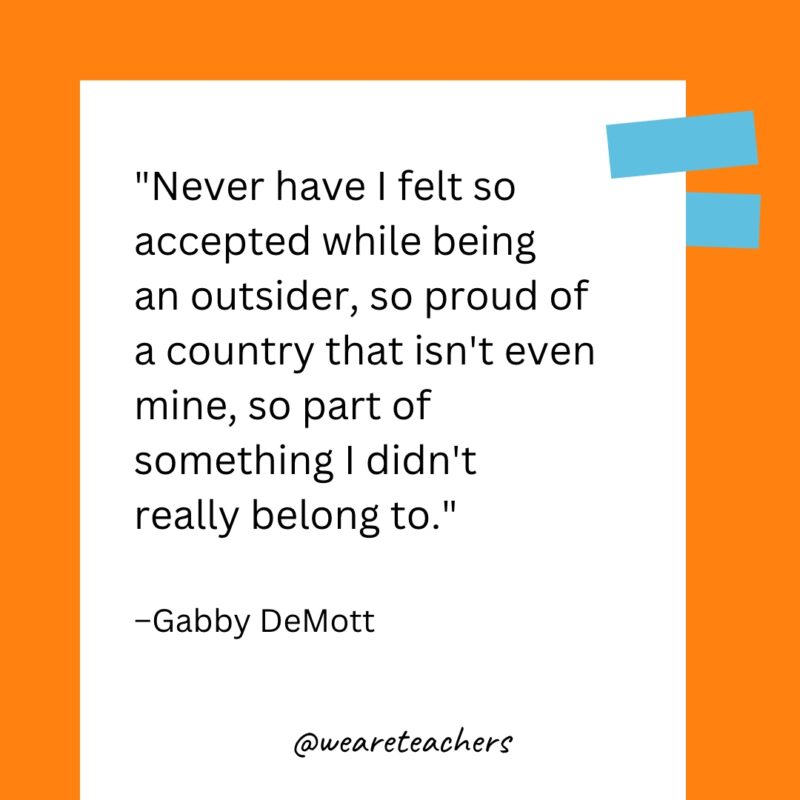
Life Happens Scholarship Essay by Emily Trader
Award Amount: $15,000
Essay prompt: How has the death of a parent or guardian impacted your life financially and emotionally? Be sure to describe how the loss of your parent/guardian impacted your college plans, and explain how the lack of adequate (or any) life insurance coverage has impacted your family’s financial situation.
Why it was successful: Emily Trader fully addressed the prompt in honest, beautiful detail. She knew her audience and tailored her essay to appeal to them while telling her compelling story.
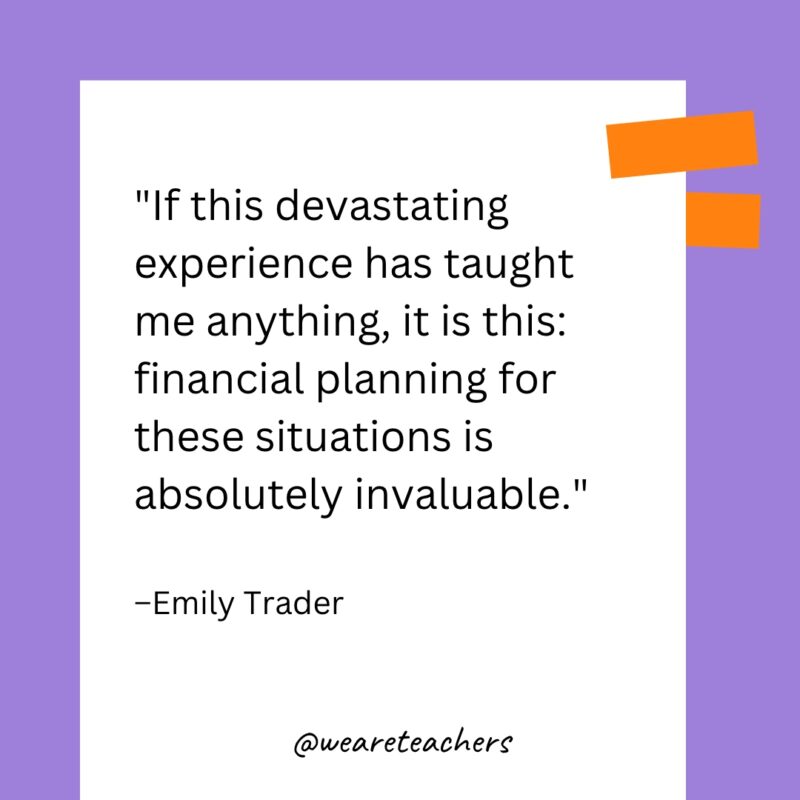
Change a Life Foundation Scholarship Essay by Isabella Mendez-Figueroa
Essay prompt: Please explain how your experience volunteering and participating in community service has shaped your perspective on humanity. Elaborate on how these experiences have influenced your future ambitions and career choice.
Why it was successful: Isabella Mendez-Figueroa shared an empowering story about her parents overcoming financial adversity so that she and her sister could be the first in their family to go to college.
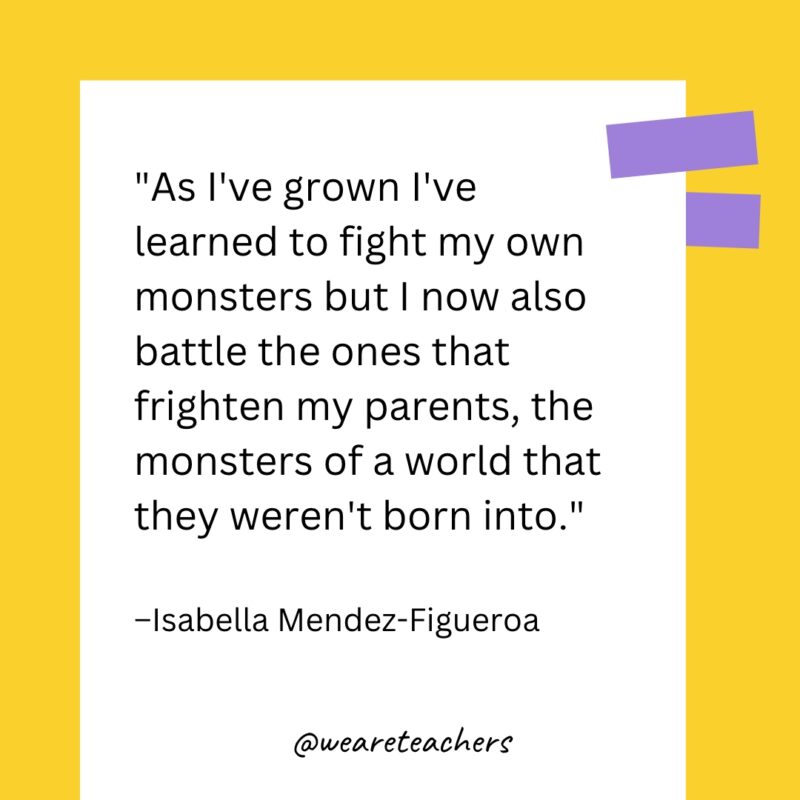
Giva Scholarship Essay by Joseph Lee
Essay prompt: Who is (or what makes) a good doctor?
Why it was successful: Joseph Lee offered a captivating , personal story that was essentially a list of things that make someone a good doctor without it feeling boring or calculated.
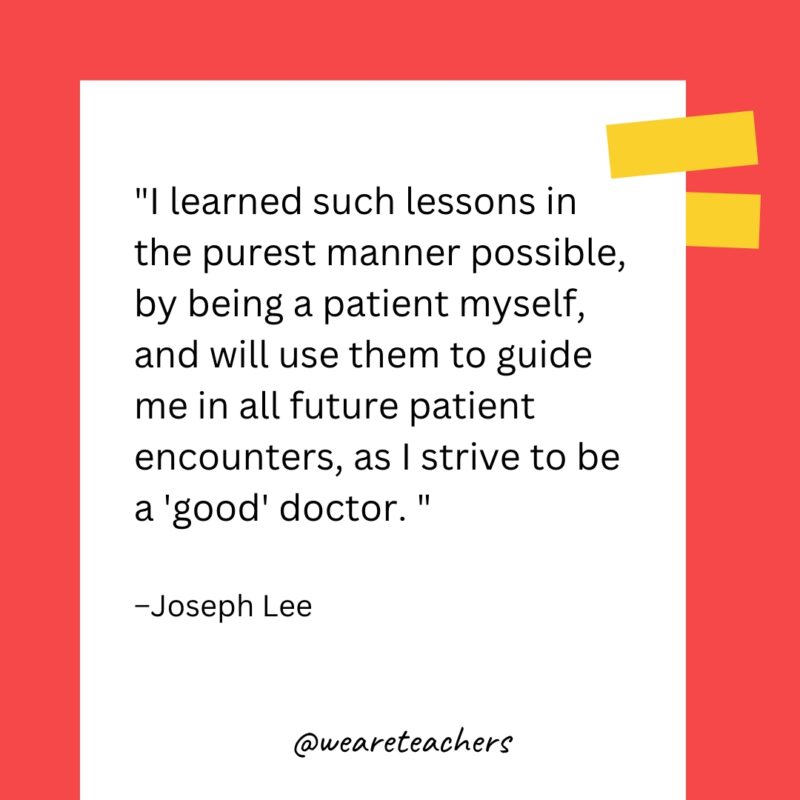

New York University College of Arts and Science Scholarship by Ana
Award amount: $39,500
Essay prompt: Explain something that made a big impact in your life.
Why it was successful: Ana discussed how early experiences w ith learning difficult things has contributed to her passion for teaching and supporting students.

The Fund for Education Abroad Rainbow Scholarship Essay by Steven Fisher
Award amount: $7,500
Essay prompt: The Fund for Education Abroad is committed to diversifying education abroad by providing funding to students who are typically under-represented in study abroad. Please describe how you and/or your plans for study abroad could be viewed as under-represented.
Why it was successful: Steven Fisher’s powerful essay connected his realizations about his own sexual identity with embracing the beautiful diversity found all around the world.
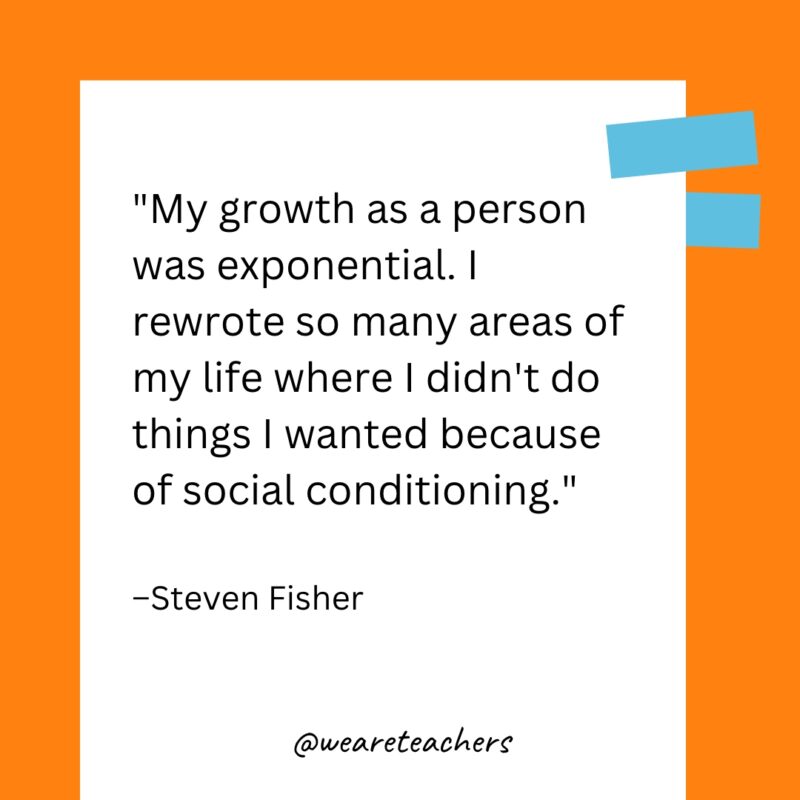
Women’s World Banking Founder’s Scholarship Essay by Rosaisha Ozoria
Essay prompt: Write about your hopes for the future of women and girls worldwide.
Why it was successful: Rosaisha Ozoria focused on a very specific topic , financial literacy for Hispanic women, and emphasized its importance and relevance to her own life.
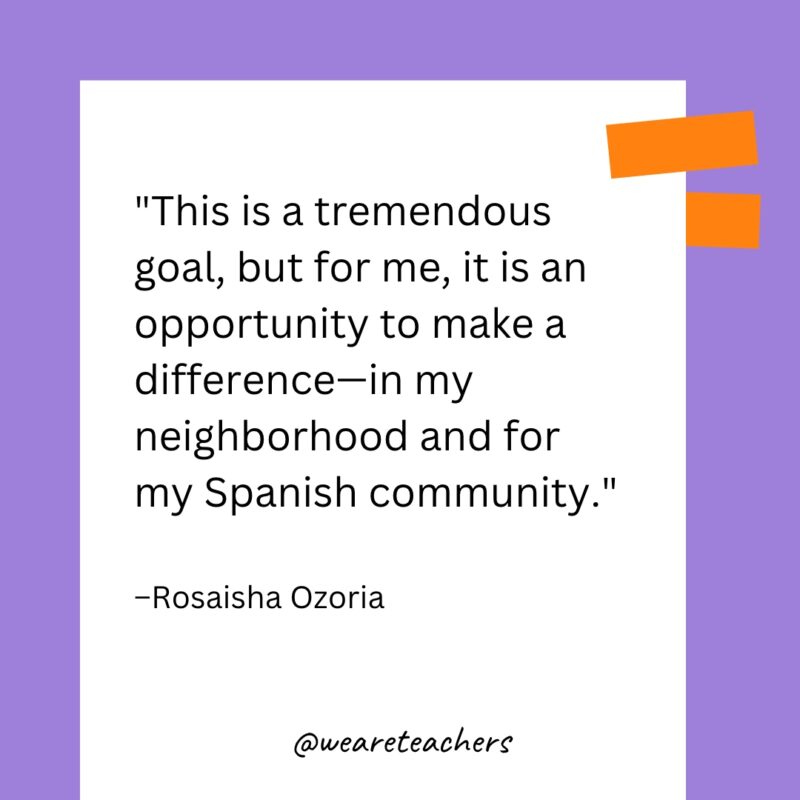
The Millennium Gates Last Dollar Scholarship Essay by Famyrah Lafortune
Award amount: $3,500
Essay prompt: Education is the most powerful weapon which you can use to change the world.” —Nelson Mandela Describe a change you would like to make in the world. Tell us about how you would plan to make that change, and what obstacles you might encounter along the way.
Why it was successful: Famyrah Lafortune starts with a strong statement about ending racial inequality and then details the steps she’ll take to make it happen.
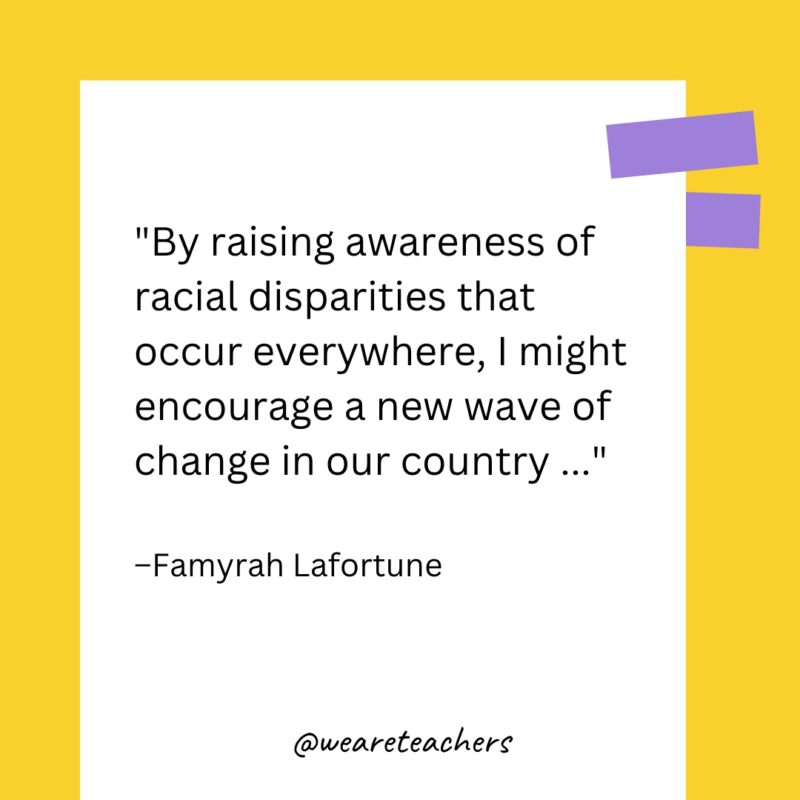
Do you have any great scholarship essay examples? Share them below!
Plus, check out the ultimate guide to college scholarships, want more suggestions be sure to subscribe to our newsletters ..
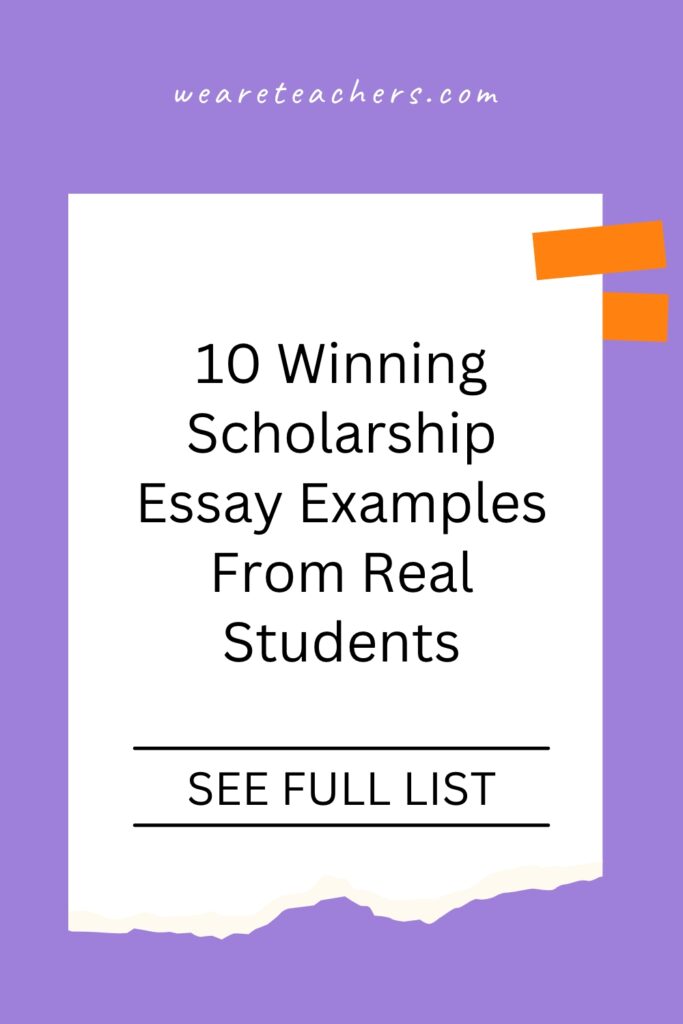
You Might Also Like
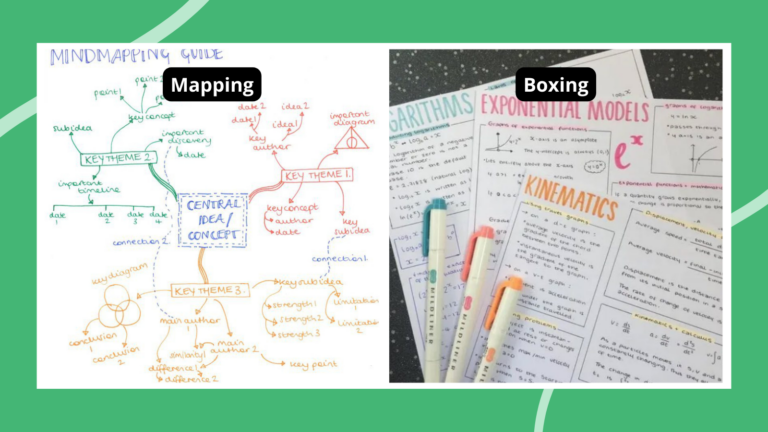
11 Helpful Note-Taking Strategies Your Students Should Know
It's a skill they can use later in life too. Continue Reading
Copyright © 2024. All rights reserved. 5335 Gate Parkway, Jacksonville, FL 32256
6 Awesome Scholarship Essays That Worked
When it comes to paying for college, scholarships are the best form of financial aid, since they offer students free money that never needs to be repaid. But let’s face it: completing scholarship applications, especially the essays, can feel overwhelming. The scholarship essay is arguably the most important part of the application and should be well-thought-out. In this article, we’ll walk through five scholarship essay examples and explain why they worked, so that you can write your own winning scholarship essays .
Here are 6 winning scholarship essay examples that worked:
Why this scholarship essay example worked:, how could this essay have been better , want more resources on writing your scholarship essay, get started with your scholarship essay.
The essay is your chance to let your personality and life experiences shine through, giving you the opportunity to stand out from other applicants.
The best way to get an idea of what scholarship committees are looking for is to look over scholarship essay examples from past winners. Take some time to analyze the writing style, think about the strong points, and consider how you can improve. Below, we’ll show you just how you might dissect a scholarship essay.

1. Going Merry Scholarship Success Story by Gabby DeMott
What’s a winning scholarship essay look like? Check out this Going Merry success story with Gabby DeMott.
ESSAY PROMPT: Discuss an accomplishment, event, or realization that sparked a period of personal growth and a new understanding of yourself or others.
“There were only a few minutes to go and our eyes were glued to the screen. On the edge of our seats, clutching whoever happened to be next to us, we watched as the referee blew his whistle and the German players took their free kick. The ball was hit with precision and skill; it flew up over the Swedish players, past their goalie, and was caught safely in the back of the opposing team’s net. We all jumped up and screamed, a mixture of German and English, of excitement and relief, of pride and anticipation.
We stood, enraptured, for the last several minutes of the game as Germany kept its 2-1 lead over Sweden. The horde of us, Germans and Americans alike, hugged and cheered and made our way out onto the balcony, where we chanted “Deutschland! Deutschland! Deutschland!” for the whole village, the whole country, the whole world to hear. Never have I felt so accepted while being an outsider, so proud of a country that isn’t even mine, so part of something I didn’t really belong to.
My German friends didn’t care that we were from different countries; they didn’t care that we would only be staying for three weeks. They accepted us into their homes and their daily lives, their traditions and their celebrations. In watching that World Cup game, it didn’t matter that we were from different places; we were all cheering for the same team. The acceptance I felt in Germany extended beyond that living room. I came to the country on a three week exchange with ten other students from my school.
We each stayed with host families and attended the Wildermuth Gymnasium, which was surprisingly accommodating to a gaggle of loud American teenagers. The teachers were friendly and welcoming, the students treated us like ordinary peers, and even the people I interacted with in public were understanding.
Before coming to Germany I feared judgment based on my level of the language (which is nowhere near as good as the German students’ English) and American politics. It was intimidating to be in a country with limited knowledge of the language and the customs, even though everyone was welcoming. People did ask myself and the other students about the US’s political climate, but no one blamed us for it. They recognized that we were outsiders, that the place we came from had flaws, and they accepted us anyway.
Since that trip, I’ve found myself trying to provide that acceptance to people in my own country. For example, I work at a canoe livery and we receive a lot of visitors with limited English. Some of my coworkers will avoid such customers because they don’t want to take the time to explain things, to exercise patience with someone who may not understand them. If people had done this to me in Germany, my time there would have been much less enjoyable; in fact, I would have been offended.
So now when someone walks up to me at the livery and asks a question in English that isn’t perfect, I smile and welcome them. I take my time to make sure they understand, that they can have a good time, and that they feel accepted. It’s a small action, but I know firsthand that it can make a big impact, at my place of work and in the world. “
- It shares a personal story of realization. Gabby’s essay throws us right in the middle of the action in her story, from her perspective. She paints a clear picture of where she is, how she feels, and what her goals were in that moment. She then goes on to explain the unity of the German and American students to introduce other people in the essay. LESSON TO TAKE : When including additional people in an essay, introduce them early on so you can continue telling your story in an organic way.
- She reflects on her previous fears and explains how she’s moved past those to grow. In the fifth paragraph, Gabby shares how she feared judgment due to her level of the German language and American politics. As Gabby became more familiar with the host families and her German friends, she realizes they accepted her, and she relaxes. LESSON TO TAKE: Sharing a story in sequential order can help illustrate personal growth and how your character changed for the better.
- She answers the prompt and demonstrates how she’ll put her newfound knowledge in action. Once Gabby realized her German friends and host family accepted her, regardless of her fears, that sparked a realization for her when she returned home to America. Gabby concludes her essay by explaining how she’s providing that same acceptance she received in another country to acquaintances and people in her country, to be patient, help them enjoy themselves, and to welcome them. LESSON TO TAKE : Consider concluding your essay with a wrap-up of what you learned, and how you plan to apply that lesson in your life.
2. Who is a “Good” Doctor? by Joseph Lee
Below is a winning essay from Joseph Lee, Rush Medical College for the Giva Scholarship.
ESSAY PROMPT: Who is (or what makes) a good doctor?
“Had you asked me the same question one year ago, my answer would have been vastly different to the one I will give today. In the summer of 2012, with my first year of medical school completed, I embarked upon my last official summer vacation with two things in mind: a basketball tournament in Dallas and one in Atlanta. My closest friends and I had been playing in tournaments for the past 10 summers, and it was a sacred bond forged together in the name of competition. However, two weeks before our first tournament, I became instantly and overwhelmingly short of breath. Having been born to Korean immigrant parents, I was raised to utilize the hospital in emergency cases only, and I knew this was such a case. A few scans later, doctors discovered numerous pulmonary emboli (PE), caused by a subclavian deep vein thrombosis (DVT), and just like that, I was lying in a bed of a major hospital for a life threatening condition.
Fast forward a few months, and I am lying in a similar bed to treat the underlying cause of the subclavian DVT: a first rib removal. There is little that can adequately prepare someone physically, emotionally or spiritually to undergo surgery; and my thoughts continued to race in the days following. In addition to the expected physical pain, isolation, fear and frustration were a few of the emotions I experienced in the four day ordeal. The procedure went according to plan thanks to a skilled surgeon and his team, but the attributes that made the doctor “good” went far beyond his ability to operate.
“Wow. I’m glad you are feeling better” and “I can’t believe you went through that” are common reactions people have when they see the scars on my upper chest. Quite frankly, the past nine months have been difficult, literally full of blood, sweat and tears. But through it all, I have been able to maintain my positivity and gratitude knowing that I have gained the invaluable experience of being a patient and discovering the vulnerability and trust that patients give their doctors. Patients indulge information to doctors that they may have never told anyone in their life and in doing so, place a great deal of trust and responsibility in the hands of a doctor. Many patients will not understand the mechanism of disease behind their condition and anticipate that the doctor will explain to them and their family why it is that they are feeling the way they are and ultimately heal them. And that is precisely what my surgeon understood: the privilege of being able to care for patients and the intimacy of the doctor-patient relationship. And as I awoke to the care of my worried parents, the first thing they wanted to discuss was the details of the procedure that was methodically and patiently explained to them by my “good” doctor.
In study after study, patients have reported dissatisfaction with their medical care, not because of lack of knowledge or health outcome, but because their doctors did not show enough warmth in the encounter or listen to the patient’s questions and concerns. There are few times where a patient and their loved ones are more vulnerable and in need of compassion than when dealing with a hospitalization. And for some doctors, a patient may be another item on a checklist, but that patient is someone’s mother or father, son or daughter, sister or brother. My “good” doctor understood this and would often say “If you were my son…” when discussing treatment options, reflecting on the type of care he would want for his family and treating me similarly. Such ideals are rooted in love and compassion for patients, not as clients in the health care system, but as fellow human beings striving to make something of themselves and the world around them (I).
Unfortunately, the ordeal of living with a chronic illness or undergoing a major operation extends beyond the confines of the hospital. Whether it is creditors harassing patients for medical bills, prescriptions that need to be refilled, or lifestyle modifications that need to be made, the health care experience doesn’t end when a patient walks out of the hospital doors. It often takes merely a minute, as in the case of the “good” doctor who told me that as a student I could apply to get the procedure financially covered by the hospital. Such foresight in anticipating financial concerns and directing me on the next steps to be taken provided relief in the surmounting stress.
Lastly, the “good” doctor understands that as our patients are human, so are we. This means we will make mistakes, some of which can result in life-threatening consequences. With that said, the “good” doctor practices humility and honesty, apologizing and sharing as much information with patients as possible. Although no one strives to make mistakes, they will happen, and how one reacts to them is a distinguishing feature of the “good” doctor (II).
Of all the qualities I tried to explain in what makes a “good” doctor, there was no emphasis on skill and knowledge. And while being able to fulfill the duties of making the correct diagnosis and appropriate treatment plans is expected, the intangibles of love, compassion, foresight and honesty is what makes a doctor, “good”. I learned such lessons in the purest manner possible, by being a patient myself, and will use them to guide me in all future patient encounters, as I strive to be a “good” doctor.”
- It tells a captivating story. This essay immediately pulls the reader in, immersing the audience right in the story. . We want to know how Joseph’s definition of a good doctor changed and why it did so. Hooking your reader from the first sentence of your essay or even the first paragraph is a surefire way to keep your reader engaged in the story you’re telling. The story itself is also told really well, with good pacing and just enough detail to elicit empathy without causing boredom. (He could have easily given too much scientific/medical detail!) LESSON TO TAKE : When telling an anecdote, consider how much detail is the right amount, to make it engaging.
- It’s a list, without you realizing it’s a list. After the first 2 paragraphs (which are mostly story-telling), the rest of the essay is effectively a list of ways that doctors are “good”: they recognize the intimacy and trust involved in the doctor-patient relationship (paragraphs 3-4), they anticipate future sources of patient stress (paragraph 5), and they exercise humility (paragraph 6). Joseph could have easily structured the essay simply by saying “There are 3 main things that make a doctor good” and then explaining each idea. However, that would have been much more boring! Instead, he expertly hides the list format, by couching it in an engaging story. LESSON TO TAKE: Not all list-type essays need to feel like lists.
- It’s personal and believable. Joseph takes a negative personal experience, shows what he learned from it and how it caused him to grow as a person. Sometimes essays about singular, defining moments or experiences can seem blown out of proportion and thus not credible. This one feels right: a big ordeal in his life that has therefore shifted his perspective. LESSON TO TAKE : Consider which personal stories to tell, and make sure the “size” of the story feels right.
3. Life Happens Scholarship by Emily Trader
Here is an example of a moving scholarship essay on the topic of family loss by Emily Trader for the Life Happens award.
ESSAY PROMPT: How has the death of a parent or guardian impacted your life financially and emotionally? Be sure to describe how the loss of your parent/guardian impacted your college plans, and explain how the lack of adequate (or any) life insurance coverage has impacted your family’s financial situation.
“When I was seventeen years old, my father lost his battle with kidney failure and cardiovascular disease. As long as I shall live, I do not believe that I will ever forget the first moment I saw my father’s once vibrant face in that cold and unforgiving casket. I won’t forget his lifeless and defeated hands, or how his pale lips would never utter another joke or speak to his grandchildren. Even though the day of his funeral was undoubtedly the worst day of my life, I wish I could relive it just to be with him one more time. Since that moment, I have felt as if all of my grief and longing resides underneath my skin with nothing to relieve the pressure. On September 8th, 2016, I lost my voice of reason, my confidant, my cheerleader, and my best friend.
Unbeknownst to me at the time, I had lost so much more. Upon my father’s passing, he left us with funeral and medical expenses that his insurance would not cover. Because he did not have any form of life insurance, the financial burden of his death was now the responsibility of my mother and me. Even though my mother works night shifts as a neonatal nurse and her commute is nearly two hours, she was forced to pick up extra shifts to support my family. Though I already had a job and I worked about ten hours a week, I now work anywhere from twenty-five to thirty-five hours a week, and I am also a full-time high honor student. Even though the death of my father forced me to realize the importance of cherishing time with my family, I do not see them very often because of our busy schedules. I also sacrificed my social life and the joy that every senior in high school should experience. Instead of football games and homecoming, I had to deal with mourning and the possibility that I would not attend college because of my family’s financial troubles.
If my father had a life insurance policy, we would not have to work ourselves to the bone and sacrifice our physical and emotional well-being to keep up with expenses. I would not have to worry so intensely about the future of my education on top of the crippling grief that I have felt over the last five months. If this devastating experience has taught me anything, it is this: financial planning for these situations is absolutely invaluable. I will not soon forget the stress and despair that I have experienced, and I now realize that to have a life insurance policy is to throw your surviving family members a crucial lifeline. Though no one can ever prepare you for the trauma of losing a parent, life insurance allows you to grieve without the constant stress of financial burden, and for that reason, it is an absolutely essential precaution.
I love and miss you so much, Dad. Thank God I will see you again.”
- She answers the prompt . It would be easy to write an essay that just spoke to her grief, or to what her father was like and how much he meant to her. But the essay prompt asks applicants to reflect on how the loss has affected the student emotionally and financially. Emily does a great job of this, by connecting the financial parts (she and her mother needing to pick up extra hours of work), with the emotional (due to the work schedule, the family not being able to spend as much time together). She also addresses how this might affect her college plans. LESSON TO TAKE :
- She provides (beautiful) detail. The first paragraph immediately pulls the reader in because of the detailed description she provides (“ his lifeless and defeated hands”, “pale lips” ). Similarly, the specificity of how her family is shouldering the financial burden (e.g. her working 25-to-35-hour weeks) make it feel more real rather than generic. LESSON TO TAKE : Use details and descriptions to make something feel more emotional and tangible.
- She knows her audience . This scholarship is funded by Life Happens, an organization formed by seven leading insurance providers, in order to educate the public about important insurance planning topics. Clearly Emily researched the provider and understood that an essay that spoke to the importance of insurance planning would be well-received by the essay readers. LESSON TO TAKE : Research the scholarship provider and adjust your content to fit the organization’s or company’s mission statement (or business model).
4. Going Merry Scholarship Success Story by Jesus Adrian Arroyo-Ramirez
Jesús Adrian Arroyo-Ramirez wrote a winning scholarship essay (and video!) that he submitted on Going Merry . He earned an outstanding $40,000 through the Golden Door Scholarship.
ESSAY PROMPT: What differentiates you from the hundreds of DACA students who apply to our scholarship? Use one of those opportunities to tell us something else we cannot see just by looking at your grades, test scores, and transcripts.
“I always knew I was different than my friends in some way. Growing up, I struggled to speak English while everyone else had little to no problems. I needed extra help in school while my friends coasted by with ease. My friends would hop on planes and travel all around the world while I had to stay at home. At the age of 13 all of my friends started driving while I still couldn’t.
I built up the courage and asked my mother why I did not have access to the simple liberties everyone else did. My name Is Jesus Adrian Arroyo-Ramirez, and I was illegally brought to this country when I was just six years old. At the time I had no clue that I was breaking any laws, and I did not realize the fact that my life was going to change forever. Growing up with a different citizenship situation than my peers was and still is the biggest challenge I have to face in my life.
Looking back there is not a single thing that I would change. Knowing that I had to work harder than everyone else lead me to be the person that I am today. I took that fire inside of me, pushed myself, graduated first in my class with a cumulative 4.0 GPA, became a Kansas Scholar, and graduated High School with a semester’s worth of college credit. In November of 2016, everything began to look up for me. I received a work permit and a social security card all thanks to the DACA program. I was finally able to get my license, get a job, and most importantly attend college.
I plan to continue my success in the classroom and do everything to the best of my ability as I know that under my current circumstances it can all be ripped away from me at any moment. Growing up with my situation has taught me to not take advantage of a single opportunity. There has been continued support around me past and current and I know there are people out there rooting for my success. I will strive to be the first generation in my family to graduate from an American University and I will set a stepping stone for my future family so they will not have to struggle as I did. My citizenship is not a setback, it is a mere obstacle that I will always learn to work around if it means giving my future children a better life, just like my mother did for me.”
- He shares how hardships made him who he is today. Right off the bat, Jesus sets the tone for his essay by sharing how he struggled to speak English and that he was not given the same opportunities as his peers. He shares his mother’s explanation on why he lived a different life, along with his honesty in the challenges of growing up with a different citizenship situation than the teens around him. LESSON TO TAKE : Share personal details (as you feel comfortable), and consider including a defining memory or conversation hat contributes to your story. This can help paint a picture of your beginnings or your inspirations.
- He includes emotional details. Although Jesus grew up with hardships, he persevered and mentions he wouldn’t change anything. It may have taken a little longer than his peers to get his license, but he also excelled in school, pushed himself to graduate first in class, and take college courses on top of all that. LESSON TO TAKE : Tell your story with details, feelings, thoughts and emotions to explain where you came from and where you are now.
- He plans for the future . Jesus shared his personal story with us, and then explains how he plans to continue his success without letting anything get in the way of his path. He goes on to say his citizenship is not a setback, and that he works to provide a better life for himself and for his future children. LESSON TO TAKE : Include your plan at the end of the essay. Consider how you’ve grown and how you will bring these lessons learned with you to help your future.
5. Why College Is Important to Me by Nicole Kuznetsov
Here’s an example of a simple yet creative and heartfelt essay on the popular prompt, Why is college important to you?
ESSAY PROMPT: Why do you want to go to college? Why is it important to you?
“As a child, my life had structure. Coloring books had lines, letters took on very specific shapes, and a system of rules governed everything from board games to the classroom. I found comfort in the fact that my future had an easy-to-follow template: elementary, middle, and high school, college, job, family retirement, “happily ever after” ending. When I graduated from elementary school I was told I completed 25% of my education. During my middle school graduation, I was told I was halfway there and I know I’ll be told I’m 75% done when I throw my cap in the air this June. College was always factored into the percentage and the overall formula for life. And I never questioned its importance. I always figured it is important because it is necessary.
Going to college makes sense. From helping my parents land stable jobs after coming to America to giving my brother the chance to gain work experience at some of the top financial firms, college educations have shown their worth in my family. Yet I didn’t think about what actually goes on inside the magical universities until I entered high school. Applying to the Academy for Math, Science, and Engineering was the first time I had actively made a decision in my education. With the encouragement of my parents and favorite science teacher who recognized that I would excel in the challenging environment of like-minded students, I applied. Four years later, I can confidently say they were right.
My class of twenty-six has shown me the benefits of a collaborative rather than a competitive environment, especially the impact that camaraderie with my peers has on our collective learning experience. Each student has an inspiring level of passion and motivation that made me excited to learn, work on projects, and participate in discussions both in and out of the classroom. I used my education to gain skills and open doors for myself such as an internship at my local hospital. I gained confidence in my abilities to communicate with individuals from strangers my age to practicing professionals. I was thinking longer and harder than I ever had before to solve individual problems and large-scale challenges. In all honesty, I was having fun.
Looking back on my years at the Academy I realize how big of an impact the school made on how I view education. I wasn’t coming to school to mark another day off my calendar and inch closer to finishing the next 25%. I came to school to learn and question and push myself. Now, as a senior, I’m excited. I’m thankful for the sample that my high school gave me of what learning is supposed to be like and thankful that it left me wanting more. I’m entering college in August with a new understanding of its importance. It is important because it is what I want for my future.”
- It finds structure through chronology . This essay is basically structured like a chronological timeline: As a child, I believed this. Then I applied to this high school (my first active academic decision). Then the high school changed me. Now I’m a senior and I believe this. Not all stories are best told in time order, but the simplest stories often are. And simple stories provide structure, which scholarship committees love. LESSON TO TAKE: Consider structuring your essay like a timeline, emphasizing the milestones along the way that have led you to where you are today.
- It is simply told . While the essay is descriptive, it doesn’t try to get fancy with overly flowery language or unnecessarily long SAT words. And that’s the strength of it. For instance, this passage [“ College was always factored into the percentage and the overall formula for life. And I never questioned its importance. I always figured it is important because it is necessary” ] explains her child’s logic in a really clear and well-written way.
- It’s got (mostly) great topic sentences . We here at Going Merry love a good topic sentence– that is, a sentence at the beginning (or end) of a paragraph that summarizes the rest of the paragraph. It helps “signpost” the most important parts of your essay. Here, three of the four paragraphs (1, 2, and 4) have strong and concise topic sentences. “As a child, my life had structure” sets up the rest of the paragraph to explain what these structures and unquestioned rules were. “Going to college makes sense” sets up why college made sense to her parents.
6. Financial Literacy for Hispanic Women by Rosaisha Ozoria
The inaugural Founder’s Scholarship supported by the New York Women’s Bond Club in honor of Michaela Walsh goes to two New York City public high school students who won an essay competition writing about their hopes for the future of women and girls worldwide . Winners of this scholarship won a trip to accompany Women’s World Banking to Amman, Jordan for their biennial gathering of WWB network members.
PROMPT: Write about your hopes for the future of women and girls worldwide.
WINNING ESSAY:
“Twice a week I head down to volunteer at the Los Sures Social Services office, situated next to the local senior citizen home, to help at the food pantry. We distribute food to people in my neighborhood. Many are familiar faces. Many are middle-aged Hispanic women with children dangling from their hips like grass skirts. These women are there as a result of their culture and lack of financial knowledge. In our Spanish culture, patriarchy prevents women from preparing for themselves as much as they should. This leads to Hispanic women having little or no money management skills. Financial illiteracy is a major issue in my neighborhood, and that is why I hope to give Hispanic women a chance for a better future through financial education.
While I was volunteering I met a woman who happened to live in the same building as my aunt. Unemployed with two young children, and a husband earning minimum wage at a fast food restaurant, she struggled to get by every day. I thought to myself – many in my community are just like her. Then I realized I could do something to help. How? I can start a financial literacy program, which teaches Hispanic women to earn and manage money. Once a woman becomes financially literate, she is capable of making good personal and professional decisions, empowering her to improve her family’s financial well-being. Moreover, such a program will help Hispanic women become competitive employees, even in a slow recovering economy such as the one we are experiencing now.
Participating in the 2013 Women’s World Banking Global Meeting in Amman, Jordan gives me access to invaluable resources that will help me achieve this goal. I hope to find mentors from a roomful of inspiring, experienced leaders who will offer me their guidance. Also, meeting accomplished women from other countries means access to new ideas and unique perspectives. And if I am lucky, I may even come across individuals who can provide financial support to jumpstart my financial literacy program for Hispanic women. Lastly, I will tell my idea to everyone I meet in Jordan, a baby step to help Hispanic women rise from poverty.
The world continues to change rapidly, especially with globalization. It is about time that Hispanic women strive for gender equality. Thus, it is essential that Hispanic women increase their roles and knowledge in finance. The women in my neighborhood shall no longer be left out. I will task myself to help these women become better, stronger and most importantly, take control of their lives. I want to be involved so that they can save themselves from any unforeseen financial crisis. This is a tremendous goal, but for me, it is an opportunity to make a difference – in my neighborhood and for my Spanish community.”
- There is clear structure . Right off the bat, the introduction summarizes what the reader can expect to find in the body of the essay. In particular, the closing line of the first paragraph (“ Financial illiteracy is a major issue in my neighborhood, and that is why I hope to give Hispanic women a chance for a better future through financial education”) works as an effective topic sentence, tying together the anecdote and the reason she’s interested in networking with the scholarship provider, Women’s World Banking. The last 2 paragraphs also serve clear, independent purposes: the penultimate one establishes what she would do with the scholarship (the trip to Amman), and the final paragraph explains why her particular interest is important for the larger Hispanic community. LESSON TO TAKE: Clear structure helps the reader follow your point better (especially if they’re skimming, which scholarship essay readers almost definitely are!) So include a summarizing topic sentence at the beginning or end of your first paragraph, and make sure each subsequent paragraph serves a purpose that moves forward your argument or story.
- The author’s passion shines. Rosaisha, the scholarship winner, is clearly passionate about serving her Hispanic community of women. And rather than simply saying that, she shows us how she cares by using personal examples from her volunteer work. LESSON TO TAKE : Show, don’t tell. Use specific personal examples, and don’t be afraid to show your emotions.
- She stays positive. Even though Rosaisha discusses what might be considered a difficult and personal topic, she keeps the tone light and inspirational. She expresses hope and her desire to make a change in the world, answering the essay in a positive tone. It’s important to make sure your essay is not too depressing to read. (Essays about personal trauma are a bad idea.) This is a scholarship provider, not a therapist!
While this was a winning essay, we note that it did have two points of weakness:
- The second paragraph lacks a bit of structure. Her point ends up feeling a bit generic, and it’s unclear what she is thinking versus planning or actually doing . For instance, she realized she could start a financial literacy program. Did she then do so? It’s unclear.
- The last paragraph is again a bit general. Often scholarship committees want to see what concrete steps will be taken, using the scholarship award. Here she speaks in lofty terms about what goals she hopes to accomplish, without explaining ways she might accomplish this goal.
For more information on writing a killer scholarship essay, check out our list of helpful tips .
Also check out these related blog posts:
- 6 tips for writing scholarship essays about academic goals
- How to write the best personal statement, with examples
- How to write an awesome essay about your career goals

You can start writing your winning scholarship essay today and submit it to thousands of scholarship applications, all in one place. Sign up for Going Merry today to put your pro scholarship essay writing skills to practice. Going Merry is your one-stop scholarship shop to search and apply for scholarships to get you on the right foot for funding your future.
- Recent Posts
- 7 Outstanding Oregon Scholarships for 2021 - November 6, 2020
- Great Scholarships for Students in Ohio for 2021 - November 4, 2020
- Great Scholarships for Students in Texas for 2021 - July 30, 2020
Ready to find scholarships that are a match for you?
Scholarship Essay Writing
Scholarship Essay Examples
12 Winning Scholarship Essay Examples for Aspiring Students
18 min read
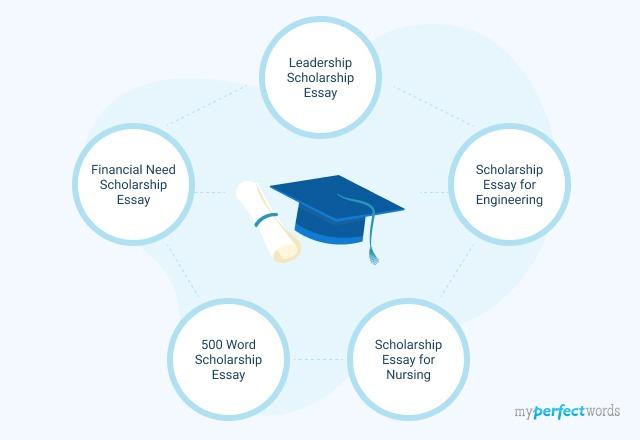
People also read
Scholarship Essay – A Complete Guide With Examples
Scholarship Essay Format - Samples & Writing Tips
Scholarship Essay Prompts 2024 For Students
Scholarships can be the key to your dreams of higher education, but the process often begins with one crucial step - the scholarship essay.
A scholarship essay is not just another requirement. It is your chance to stand out from the competition and convince the selection committee that you are the perfect candidate deserving of their support.
However, crafting a winning scholarship essay is not an easy task. You are in competition with hundreds of applicants, and you need to get a lot of things right to stand out.
But don’t worry; reading some winning samples can help you understand how to write better scholarship essays.
This blog presents 12 remarkable scholarship essay examples to inspire your success. These real-life essays, written by scholarship recipients, offer invaluable insights and strategies to help you secure funding for your education.
So read on!
- 1. Financial Need Scholarship Essay Example for College
- 2. Leadership Scholarship Essay Examples
- 3. Scholarship Essay Example for Engineering
- 4. Nursing Scholarship Essay Example
- 5. Scholarship Essay About Yourself
- 6. Winning Scholarship Essay Examples
- 7. Tips to Write a Winning Scholarship Essay
Financial Need Scholarship Essay Example for College
Students often apply for financial assistance scholarships for their college education. Such scholarships require you to provide compelling reasons as to why you deserve financial aid.
Here is an example that successfully caters to this question:
Why This Scholarship Essay Succeeded
This scholarship essay effectively conveys the applicant's financial need while also highlighting their determination and commitment to education. Here are some key elements that contributed to its success:
- Personal Story: The essay starts with a personal story about growing up in a single-parent household, providing context for the financial need. This makes the essay relatable and emotionally engaging.
- Specific Financial Challenges: The essay details the specific financial challenges the applicant faces, such as tuition, textbooks, and living expenses. Specificity adds credibility to the financial need.
- Explains the Significance of the Scholarship for Education: The essay explains how receiving the scholarship would positively impact the applicant's education, allowing them to focus more on studies and extracurricular activities.
Leadership Scholarship Essay Examples
When applying to programs for training young leaders, they often require you to write an essay. Here is a leadership scholarship essay sample:
Why This Scholarship Essay Worked
This leadership scholarship essay effectively showcases the applicant's leadership journey, growth, and suitability for the scholarship. Here are some key elements that contributed to its success:
- Personal Growth: The essay highlights the applicant's personal growth and development through their leadership experiences, demonstrating a clear understanding of what leadership entails.
- Specific Examples: The applicant provides specific examples of challenges faced and initiatives undertaken as a leader, adding credibility to their claims.
- Lessons Learned: The essay discusses the lessons learned, emphasizing qualities such as communication, teamwork, and empathy, which are essential for effective leadership.
- Alignment with Scholarship: The essay explains how the scholarship will support the applicant's continued leadership growth and commitment to making a positive impact.
Scholarship Essay Example for Engineering
Engineering schools have a strong vetting process to ensure that they only let in serious students. Writing a scholarship essay is their way of judging a student’s interests and capabilities.
Check out this catchy sample:
Why this Engineering Scholarship Essay Worked
Here are some key elements that contributed to the essay’s success:
- Passion and Dedication: The essay clearly communicates the applicant's deep passion for engineering, emphasizing their lifelong commitment to the field.
- Specific Examples: The applicant provides specific examples of their experiences in engineering, such as the cooling system project and the sustainable housing initiative, demonstrating their practical application of engineering skills.
- Financial Need: The essay briefly touches upon the financial challenges faced by the applicant, which adds context to their need for financial support.
- Impact and Contribution: The essay discusses how receiving the scholarship will enable the applicant to focus more on their studies and research projects, emphasizing their desire to contribute meaningfully to the field of engineering.
Nursing Scholarship Essay Example
Nursing institutions require hard-working and committed pupils. That’s why the scholarship essay is an essential part of their application process.
So, what does a good nursing scholarship essay look like? Here’s an example:
Why This Nursing Scholarship Essay Succeeded
This nursing scholarship essay effectively conveys the applicant's passion for nursing and their commitment to patient-centered care. Here are some key elements that contributed to its success:
- Passion for Nursing: The essay clearly communicates the applicant's passion for nursing, emphasizing personal experiences that ignited this passion.
- Continuous Learning: The essay highlights the applicant's commitment to ongoing learning and professional growth, which is essential in the nursing field.
- Community Engagement: The applicant showcases their involvement in community health initiatives and volunteering, demonstrating a dedication to improving healthcare beyond the clinical setting.
- Leadership Experience: The essay discusses leadership roles within the nursing program, emphasizing the applicant's understanding of nursing as a leadership role in healthcare.
- Impactful Clinical Experience: The inclusion of the palliative care unit experience adds a unique perspective. It also adds an emotionally resonant dimension to the essay, highlighting the applicant's dedication to patient-centered care.
Scholarship Essay About Yourself
Some scholarship essays require a more personal touch. Scholarship committees are interested to learn about your experiences and how you express them.
Here is an example of an essay focusing on the applicant’s life experiences.
This scholarship essay effectively highlights the applicant's personal experiences and qualities that make them a suitable candidate for the scholarship. Here are some key elements that contributed to its success:
- Values and Background: The essay begins by establishing the applicant's background and values, emphasizing the importance of education and family sacrifices.
- Academic Excellence: The applicant showcases their commitment to academic excellence, including being named valedictorian, which adds credibility to their dedication to learning.
- Passion and Career Goals: The essay highlights the applicant's interest in psychology and mental health, revealing their career aspirations and a deep sense of purpose.
- Courage to Grow: The essay concludes with a strong commitment to education and the desire to use it as a tool for positive change in their community.
Winning Scholarship Essay Examples
You have read five scholarship essay examples with a complete analysis of why they were successful. Here are some more excellent examples that stand out due to similar reasons.
Read these samples and ask yourself, can you figure out why these essays catch the readers’ attention?
Sample Scholarship Essays
Sometimes, scholarship essays require a limited word count. You should always read the instructions and requirements of an essay before writing.
Here are two scholarship essay samples with different word limits.
500-Words Scholarship Essay Example About Career Goals
250 Words Scholarship Essay Example
Scholarship Essay Examples for Different Academic Levels
These scholarship essay examples cater to various academic levels. They demonstrate how students at different stages of their education can craft successful essays.
Scholarship Essay Example For High School Students
Scholarship Essay Example For College Application
Masters Scholarship Essay Example For Students
Scholarship Essay Examples - Why You Deserve This
These examples focus on explaining why the applicants deserve the scholarship, emphasizing their qualifications, achievements, and aspirations.
Why I Deserve This Scholarship Essay Example
Why Should You Receive This Scholarship
There are many different prompts you can be assigned for your scholarship essay, so better be prepared. Check out this list of scholarship essay prompts to get a better idea!
Tips to Write a Winning Scholarship Essay
The following are some useful tips and suggestions for writing a successful scholarship essay:
- Understand the Prompt: Carefully read and understand the essay prompt. Ensure that your response directly addresses the specific questions or topics provided. Tailor your essay to the scholarship's requirements.
- Plan and Organize: Start with an essay outline . Identify key points you want to cover and the structure of your essay. A well-organized essay with a clear introduction, body, and conclusion is more engaging and easier to follow.
- Be Authentic: Be true to yourself and your experiences. Authenticity resonates with scholarship committees. Share your genuine motivations, goals, and challenges, as it makes your essay more relatable.
- Address Your Audience: Consider your audience, that is the scholarship selection committees. Tailor your essay to their expectations and values, emphasizing how you align with the scholarship's mission and goals.
- Highlight Achievements and Impact: Showcase your accomplishments, both academic and extracurricular, and discuss the impact they've had on your life and your community. Explain how the scholarship will enable you to achieve even more.
- Express Your Passion: Demonstrate your passion for your field of study or the cause the scholarship supports. Explain why you are deeply committed and how the scholarship will help you make a significant contribution.
- Follow Instructions: Pay close attention to any specific instructions or requirements provided by the scholarship organization. Failure to comply with guidelines can lead to disqualification.
- Revise and Rewrite: After an initial draft, take time to revise and rewrite your essay. Don't hesitate to make substantial changes if necessary to improve clarity, coherence, and impact.
- Seek Feedback: Have someone else, such as a teacher, mentor, or family member, review your essay. Fresh perspectives can identify areas for improvement.
To conclude,
These essay examples were a good way to start. You’ve read and learnt the qualities that made them successful. Now, it’s your time to apply what you’ve learnt to your own scholarship essays.
Remember, crafting a winning scholarship essay takes time and effort. Be authentic and convey your aspirations, achievements, and the impact you hope to make. With dedication and these valuable tips, you can create a compelling scholarship essay that helps you achieve your education goals.
In addition, we understand that writing a scholarship essay can be incredibly difficult due to the high stakes. But don’t let the stress takeover, let our professional scholarship essay writing service handle it.
Our expert writers have written hundreds of successful scholarship essays with a high rate of success. Don't wait any longer, get in touch with our paper writer service today and let us help you achieve your academic goals!

Write Essay Within 60 Seconds!

Cathy has been been working as an author on our platform for over five years now. She has a Masters degree in mass communication and is well-versed in the art of writing. Cathy is a professional who takes her work seriously and is widely appreciated by clients for her excellent writing skills.

Paper Due? Why Suffer? That’s our Job!
Keep reading
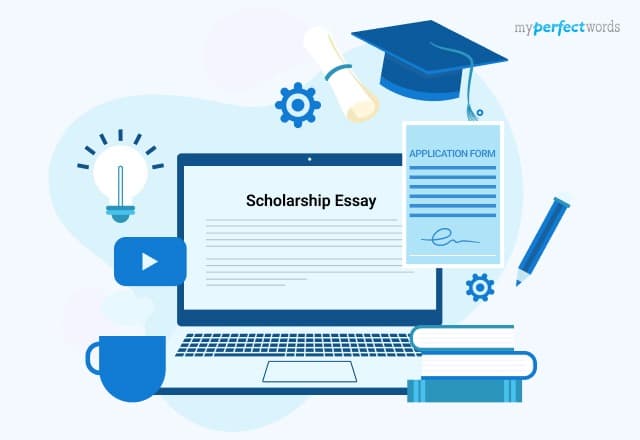
What are your chances of acceptance?
Calculate for all schools, your chance of acceptance.
Your chancing factors
Extracurriculars.
How to Write a Personal Statement for a Scholarship + Examples
What’s covered:, what is the purpose of the scholarship personal statement, what to include in your personal statement, personal statement example: breakdown + analysis, how to make sure your writing is effective.
Either before or after you’ve gotten into your dream school, you’ll have to figure out how to pay for it. For most students, this involves a combination of financial aid, parent contributions, self-contributions, student loans, and scholarships/grants. Because scholarships are money out of someone else’s pocket that you never have to pay back, they are a great place to start!
Scholarships come in two forms: merit-based and need-based. Need-based scholarships are also often called grants. These designations tell you whether an organization looks at your financial situation when deciding about your scholarship.
Additionally, different scholarships fall under different categories based on the mission of the organization or person providing the scholarship’s financing. These missions typically emphasize different things like academic achievement, specific career goals, community service, leadership, family background, skill in the arts, or having overcome hardship. As you select scholarships to apply for and complete your applications, you should keep these missions in mind.
No matter what type of scholarship you are applying for, you will be asked to provide the review committee with standard materials. This includes your transcript, GPA, and resume/extracurriculars, but also, importantly, your personal statement. A scholarship personal statement is a bit different from your normal college essay, so we’ve put together this guide and some examples to help you get started!
The purpose of your personal statement is to help a review committee learn more about your personality, values, goals, and what makes you special. Ultimately, like with your college essays, you are trying to humanize your profile beyond your transcript, GPA, and test scores.
College essays all have one goal in mind (which is why you can apply to multiple schools at once through applications like the Common App or Coalition App): convince admissions officers that you would be a valuable addition to the university environment. The goal of your scholarship personal statement is different and differs more from one scholarship to the next. Rather than convincing various review committees that you are a generally good candidate for extra funding for college, you need to convince each review committee that your values have historically aligned with their organization’s mission and will continue to align with their organization’s mission.
Common missions amongst those who give scholarships include:
- Providing opportunities for students with career ambitions in a particular field
- Helping students who have experienced unexpected hardship
- Supporting students who show outstanding academic achievement
- Funding the arts through investing in young artists with strong technical skill
- Supporting the development of civic-minded community service leaders of the future
- Providing opportunities for historically underrepresented ethnic communities
If a specific mission like this is outlined on an organization’s website or in the promotional material for its scholarship, the purpose of your personal statement is to show how you exemplify that mission.
Some scholarships ask for your personal statement to be guided by a prompt, while others leave things open for interpretation. When you are provided a prompt, it is obvious what you must do: answer the prompt. When you are not provided a prompt, you want to write a personal statement that is essentially a small-scale autobiography where you position yourself as a good investment. In either case, you should identify a focus or theme for what you are trying to say about yourself so that your application does not get lost in the shuffle.
Prompts include questions like:
- Why do you deserve this scholarship?
- How have you shown your commitment to (leadership/community service/diversity) in your community?
- When did you overcome adversity?
- Why is attending college important to you?
If you are provided a prompt, develop a theme for your response that showcases both your values and your achievements. This will help your essay feel focused and will subsequently help the review committee to remember which candidate you were as they deliberate.
Themes include things like:
- I deserve this community service scholarship because my compassion for intergenerational trauma has inspired me to volunteer with a local after-school program. I didn’t just sympathize. I did something about my sympathy because that’s the type of person I am. Within the program, I have identified avenues for improvement and worked alongside full-time staff to develop new strategies for increasing attendance.
- I overcame adversity when my mother had to have a major surgery two months after giving birth to my younger brother. I was just a kid but was thrown into a situation where I had to raise another kid. It was hard, but I’m the kind of person who tries to grow from hard times and, through my experience taking care of a baby, I learned the importance of listening to body language and nonverbal cues to understand the needs of others (baby and nonbaby, alike).
Without a prompt, clarity can be harder to achieve. That said, it is of the utmost importance that you find a focus. First, think about both your goals and your values.
Types of goals include:
- Career goals
- Goals for personal growth
- The type of friend you want to be
- The change you want to make in the world
Values could include:
- Authenticity
- And many more!
After you write out your goals/values, write out your achievements to see what goals/values you have “proof” of your commitment to. Your essay will ultimately be an exploration of your goal/value, what you have done about your goal/value in the past, and what you aspire to in the future.
You might be tempted to reflect on areas for improvement, but scholarships care about you living out your values. It is not enough to aspire to be exemplary in leadership, community service, or your academic field. For scholarships, you have to already be exemplary.
Finally, keep in mind that the review committee likely already has a copy of your extracurricular activities and involvement. Pick one or two accomplishments, then strive for depth, not breadth as you explore them.
My interest in the field of neuroscience began at a young age. When I was twelve years old, my sister developed a condition called Pseudotumor Cerebri following multiple concussions during a basketball game. It took the doctors over six months to make a proper diagnosis, followed by three years of treatment before she recovered. During this time, my love for neuroscience was sparked as I began to research her condition and, then, other neurocognitive conditions. Later, my love of neuroscience was amplified when my mother began to suffer from brain-related health issues. My mother had been a practicing attorney in Dallas for over twenty years. She was a determined litigator who relentlessly tried difficult cases that changed people’s lives. Now, she suffers from a cognitive impairment and is no longer able to practice law. Oftentimes, she has headaches, she gets “cloudy,” her executive functioning slows down, she feels overwhelmed, and she forgets things. My mother has gone from being the strong, confident, emotional and financial caretaker of our family to needing significant help on a daily basis. Once again, with this illness came a lot of research on my part — research that encouraged me to pursue my dreams of exploring neuroscience.
Due to my experiences with my mother and sister when I was in middle school, I knew that I wanted to make a difference in the field of neuroscience. I also knew that, to obtain this goal, I needed to maintain superior grades in school while also pursuing opportunities outside of school to further my education. In school, I was able to maintain superior grades to the point where I am currently valedictorian in a class of 567 students. In addition, in school, I challenged myself by taking 16 Advanced Placement classes and 19 Honors classes. Two of the most beneficial classes were AP Capstone Seminar and AP Capstone Research. AP Capstone Seminar and AP Capstone Research are research-oriented classes where students are given the opportunity to pursue whatever track their research takes them down. As a junior in AP Capstone Seminar, I researched the effects of harmful pesticide use on the prevalence of Autism Spectrum Disorder (ASD) in children. This year, as a senior in AP Capstone Research, I am learning about the effects of medical marijuana on the treatment of Multiple Sclerosis (MS).
Outside of school, I furthered my education through taking advantage of the Duke TiP summer program. Duke TiP is a summer program run by Duke University where students who score extremely well on the SAT as middle schoolers are able to take college classes at different universities throughout the summers of their middle school and high school years. I took advantage of this opportunity twice. First, I went to Trinity University in San Antonio to expand my horizons and learn more about debate. However, once I was done exploring, I decided I wanted to go into neuroscience. This led me to take an Abnormal Psychology class at Duke University’s West Campus. This class opened my eyes to the interaction between neuroscience and mental health, mental illness, and personality. Years later, I am currently continuing my education outside of school as an intern at the University of Texas Dallas Center for Brain Health. Through this internship, I have been able to see different aspects of neuroscience including brain pattern testing, virtual reality therapy, and longitudinal research studies. With this background, I have positioned myself to be accepted by top neuroscience programs throughout the nation. So far, I have been accepted to the neuroscience department of University of Southern California, the University of Virginia, the University of Texas, and Southern Methodist University, as well as the chemistry department at University of North Carolina–Chapel Hill.
It is with this passion for neuroscience driven by my family and passion for education driven by internal motivation that I will set out to conquer my career objectives. My educational aspirations consist of acquiring a bachelor’s degree in a biological or health science that would assist me in pursuing a medical career as a neuroscience researcher. I decided to attain a career as a researcher since my passion has always been assisting others and trying to improve their quality of life. After obtaining my Masters and my PhD, I plan to become a professor at a prestigious university and continue performing lab research on cognitive disorders. I am particularly interested in disorders such as Autism Spectrum Disorder (ASD). In the lab, I hope to find different therapies and medications to help treat the 3.5 million people around the world suffering from ASD. Furthermore, I want to contribute back to underserved populations that struggle because they do not have as much access to medical assistance as other privileged groups. As such, I hope to do a part of my research in less developed or developing Spanish-speaking countries. This will also allow me to pursue my love of Spanish while pursuing my love of neuroscience. I think that following such a career path will provide me the opportunity to learn about the medical needs of the autistic community and improve their quality of health. Furthermore, I hope to train a new generation of students to strive to research and make comparable discoveries. Whether it be through virtual reality labs or new drug discoveries, I believe that research leads to innovation which leads to a brighter future.
This student does a great job of making themself appear competent and dedicated to the field of neuroscience. This is primarily because they provided tangible evidence of how they have pursued their dedication in the past—through their AP Capstone courses, their Abnormal Psychology class at Duke TiP, and their internship at UTD. There is no doubt in the mind of a reader that this student is high-achieving.
This student also engages successfully with a past-future trajectory, where they end with a vision of how they will continue to use neuroscience in the future. This helps the review committee see what they are investing in and the ways that their money will go to good use.
This student has two major areas for improvement. As we have said, the purpose of a personal statement is for a student to humanize themself to a review committee. This student struggles to depict themself separately from their academic achievements. A solution to this would be for the student to establish a theme towards the beginning of their essay that relates to both their values as a human and their achievements.
At the beginning of the essay, the student explores how their interest in neuroscience began. They explain their interest through the following sentences: “During this time, my love for neuroscience was sparked as I began to research her condition and, then, other neurocognitive conditions” and “Once again, with this illness came a lot of research on my part — research that encouraged me to pursue my dreams of exploring neuroscience.” The student made the great decision to tell the backstory of their interest, but they described their research in very mundane and redundant terms. Instead, they could have focused on their value of intellectual curiosity as a magnetic force that encouraged them to research their mother and sister’s ailments. Curiosity, then, could serve as a value-related thematic throughline to taking AP Capstone classes, taking college courses during the summer that weren’t required, and interning before even graduating high school.
A second area for improvement would be avoiding statistics. As the student identifies their valedictorian status and the number of AP classes they have taken, they might turn away certain personalities on a review committee by appearing braggy. Even further, these statistics are a waste of space. The review committee already has access to this information. These words distract from the major theme of the essay and would have been better used to humanize the student.
Throughout my academic career, I have been an avid scholar, constantly pushing myself towards ambitious goals. I held and continue to hold myself to a high standard, enrolling myself in rigorous curriculum, including Honors and Advanced Placement courses to stretch my mental potential. During my junior year of high school, I took four AP tests, two on the same day, and earned the AP Scholar with Honor Award. Additionally, I received the Letter of Commendation for the PSAT/NMSQT, and qualified for Rotary Top 100 Students both my freshman and senior year, a sign of my commitment to my studies. However, school has not been all about having the best GPA for me; beyond the numbers, I have a deep drive to learn which motivates me to do well academically. I truly enjoy learning new things, whether it be a new essay style or a math theorem. I always give each class my best effort and try my hardest on every assignment. My teachers have noticed this as well, and I have received school Lancer Awards and Student of the Month recognitions as a result. It is a major goal of mine to continue to aspire towards a high level of achievement regarding future educational and occupational endeavors; I plan on continuing this level of dedication throughout my educational career and implementing the skills I have learned and will learn into my college experience and beyond.
This fall, I will begin attending the University of California Los Angeles as an English major. I chose this major because I am fascinated by written language, especially its ability to convey powerful messages and emotions. I also enjoy delving into the works of other authors to analyze specific components of their writing to discover the meaning behind their words. In particular, I cannot wait to begin in-depth literary criticism and learn new stylistic techniques to add more depth to my writing. Furthermore, I recently went to UCLA’s Bruin Day, an event for incoming freshmen, where I was exposed to many different extracurriculars, some of which really piqued my interest. I plan on joining the Writing Success Program, where I can help students receive free writing help, and Mock Trial, where I can debate issues with peers in front of a real judge. The latter, combined with a strong writing background from my undergraduate English studies will be extremely beneficial because I plan to apply to law school after my undergraduate degree. As of now, my career goal is to become a civil rights lawyer, to stand up for those who are discriminated against and protect minority groups to proliferate equality.
As a lawyer, I wish to utilize legislation to ameliorate the plight of the millions of Americans who feel prejudice and help them receive equity in the workplace, society, and so on. Though this seems a daunting task, I feel that my work ethic and past experience will give me the jumpstart I need to establish myself as a successful lawyer and give a voice to those who are often unheard in today’s legal system. I have been a Girl Scout for over a decade and continually participate in community service for the homeless, elderly, veterans, and more. My most recent project was the Gold Award, which I conducted in the Fullerton School District. I facilitated over ten workshops where junior high students taught elementary pupils STEM principles such as density and aerodynamics via creative activities like building aluminum boats and paper airplanes. I also work at Kumon, a tutoring center, where I teach students to advance their academic success. I love my job, and helping students from local schools reach their potential fills me with much pride.
Both being a Girl Scout and working at Kumon have inspired me to help those in need, contributing significantly to my desire to become a lawyer and aid others. My extracurriculars have allowed me to gain a new perspective on both learning and teaching, and have solidified my will to help the less fortunate. In college, I hope to continue to gain knowledge and further develop my leadership skills, amassing qualities that will help me assist others. I plan to join multiple community service clubs, such as UCLA’s local outreach programs that directly aid residents of Los Angeles. I want to help my fellow pupils as well, and plan on volunteering at peer tutoring and peer editing programs on campus. After college, during my career, I want to use legal tactics to assist the underdog and take a chance on those who are often overlooked for opportunities. I wish to represent those that are scared to seek out help or cannot afford it. Rather than battling conflict with additional conflict, I want to implement peaceful but strong, efficient tactics that will help make my state, country, and eventually the world more welcoming to people of all ethnic and socioeconomic backgrounds. These goals are close to my heart and therefore I will be as diligent as I am passionate about them. My perseverance and love for learning and community service drive my ambition in both education and life as a whole, and the drive to make the world a better place is one that I will carry with me for my entire life.
This student emphasizes two values in this essay: hard work and community service. These are values that go together nicely, and definitely make sense with this student’s end goal of becoming a civil rights lawyer! That said, some changes could be made to the way the student presents their values that would make their personal statement more convincing and engaging.
Structurally, instead of using a past-future trajectory, this student starts by explaining their academic achievements, then explains their career goals, then explains their history of community service, then explains their future desires for community service. This structure loses the reader. Instead, the student should have started with either the past or the future.
This could look like 1) identifying their career goals, 2) explaining that hard work and a commitment to community service are necessary to get there, and 3) explaining that they aren’t worried because of their past commitment to hard work and community service. Or it could look like 1) providing examples of their hard work and community service in the past, then 2) explaining how those values will help them achieve their career goals.
Additionally, like with our other example, this student shows a heavy investment in statistics and spouting off accomplishments. This can be unappealing. Unfortunately, even when the student recognizes that they are doing this, writing “beyond the numbers, I have a deep drive to learn which motivates me to do well academically. I truly enjoy learning new things, whether it be a new essay style or a math theorem,” they continue on to cite their achievements, writing “My teachers have noticed this as well, and I have received school Lancer Awards and Student of the Month recognitions as a result.” They say they are going beyond the numbers, but they don’t go beyond the awards. They don’t look inward. One way to fix this would be to make community service the theme around which the essay operates, supplementing with statistics in ways that advance the image of the student as dedicated to community service.
Finally, this student would be more successful if they varied their sentence structure. While a small-scale autobiography can be good, if organized, every sentence should not begin with ‘I.’ The essay still needs to be engaging or the review committee might stop reading.
Feedback is ultimately any writer’s best source of improvement! To get your personal statement edited for free, use our Peer Review Essay Tool . With this tool, other students can tell you if your scholarship essay is effective and help you improve your essay so that you can have the best chances of gaining those extra funds!
Related CollegeVine Blog Posts

- Search All Scholarships
- Exclusive Scholarships
- Easy Scholarships to Apply For
- No Essay Scholarships
- Scholarships for HS Juniors
- Scholarships for HS Seniors
- Scholarships for College Students
- Scholarships for Grad Students
- Scholarships for Women
- Scholarships for Black Students
- Scholarships
- Student Loans
- College Admissions
- Financial Aid
- Scholarship Winners
- Scholarship Providers
Student-centric advice and objective recommendations
Higher education has never been more confusing or expensive. Our goal is to help you navigate the very big decisions related to higher ed with objective information and expert advice. Each piece of content on the site is original, based on extensive research, and reviewed by multiple editors, including a subject matter expert. This ensures that all of our content is up-to-date, useful, accurate, and thorough.
Our reviews and recommendations are based on extensive research, testing, and feedback. We may receive commission from links on our website, but that doesn’t affect our editors’ opinions. Our marketing partners don’t review, approve or endorse our editorial content. It’s accurate to the best of our knowledge when posted. You can find a complete list of our partners here .
Examples of Scholarship Essays for the “Career Goals” Question

Emily Wong is a writer at Scholarships360. She’s worked as a social media manager and a content writer at several different startups, where she covered various topics including business, tech, job recruitment, and education. Emily grew up and went to school in the Chicago suburbs, where she studied economics and journalism at Northwestern University.
Learn about our editorial policies

Maria Geiger is Director of Content at Scholarships360. She is a former online educational technology instructor and adjunct writing instructor. In addition to education reform, Maria’s interests include viewpoint diversity, blended/flipped learning, digital communication, and integrating media/web tools into the curriculum to better facilitate student engagement. Maria earned both a B.A. and an M.A. in English Literature from Monmouth University, an M. Ed. in Education from Monmouth University, and a Virtual Online Teaching Certificate (VOLT) from the University of Pennsylvania.

Writing an essay is often the trickiest part of the scholarship application, not to mention the most time-consuming. However, the essay section also allows room for creativity and individuality. If you can communicate effectively, you can use the essay portion to stand out from the crowd. Let’s go over some tips for writing, as well as a couple of scholarship essay examples about career goals.
How to write a scholarship essay
At this point, you’ve probably gained plenty of experience writing papers for school. However, it may still take a couple of tries to nail the scholarship essay. Since scholarship teams often have to get through a lot of applications, it’s important to stand out while staying concise. Here are some simple guidelines for writing scholarship essays.
See also: How to write a winning scholarship essay (with examples!)
Take five minutes to brainstorm
Before you even start your essay, take some time to gather your thoughts. Think about what you’ll want the paper to focus on. Why did you choose to pursue your career path in the first place? Where do you want to be in five years? How would this scholarship help you further your studies and work toward your goals?
Once you’ve jotted down a few ideas, choose one or two to center your essay on. Identifying the focus of your paper, it’ll make it easier to keep your thoughts organized. In turn, it’ll make it easier for the reader to follow.
Related : How to start a scholarship essay (with examples!)
Stay within the word limit
Unlike the four-page essays that you may have written in English class, scholarship essays are often only a paragraph or two. In order to respect the selection committee’s time, be wary of going too far about the specified word count. A general rule of thumb is to stay within 20 words above or below the limit. That may entail a few rounds of edits to get the wording just right.
Stay positive!
Feel free to use part of your essay to talk about your life’s challenges. After all, the selection committee often wants to give the award to a candidate who needs it. However, make sure your anecdote doesn’t devolve into a sob story. If you’re going to bring up hardships you’ve endured, try to balance it by talking about how you’ve overcome them. By demonstrating resilience, you can show readers how you would use the scholarship to succeed in your current situation.
Leave time to proofread
Especially for a short scholarship essay, proofreading can take as little as 5-10 minutes. Still, it can be tempting to just hit “submit” after your first draft. However, being too impulsive can leave your essay riddled with typos and grammatical errors.
Try to avoid unnecessary mistakes by finishing your draft at least 24 hours before the scholarship deadline. That way, you can proofread it with fresh eyes before you submit it.
If you’re struggling to close out your essay, read how to end a scholarship essay in five steps .
Apply to these scholarships due soon

$10,000 “No Essay” Scholarship

$2,000 Sallie Mae Scholarship

$40,000 Build a College List Scholarship

Niche $25,000 “No Essay” Scholarship

$25k “Be Bold” No-Essay Scholarship

$10,000 CollegeXpress Scholarship

$1,000 Appily Easy College Money Scholarship

$5,000 Christian Connector Scholarship

$2,000 No Essay CollegeVine Scholarship
How to write a 100-word “career goals” essay.
When writing a 100-word essay, you’ll have to choose your content carefully. Since space is limited, you’ll want to identify the most important details to include beforehand.
First and foremost, make sure to clearly communicate your current pursuits. Talk about your academic and extracurricular activities related to your career goals. Additionally, it’s important to be specific about what you plan to do in the future. Then, if you have extra room, you can talk about how the scholarship will help you reach your goals.
My name is Alison MacBride, and I’m a sophomore at the University of Illinois. I’m currently pursuing a major in Journalism with a minor in Natural Resource Conservation. After completing my program, I plan to combine my areas of interest to become an environmental journalist.
During high school, I volunteered at an eco-conscious farm, where I learned about how our actions affect the earth. Since then, I’ve been set on raising awareness for the environment. This scholarship would go a long way in helping me finish my degree with the skills I need to investigate and report about critical issues.
Word count: 100
How to write a 250-word “career goals” essay
For the 250-word essay, you can go into more detail. Give the readers some context by talking about how you first got interested in your chosen career. Storytelling can be especially effective in engaging your audience. Try to capture their attention by choosing one or two concrete examples and relaying them vividly.
Additionally, you can spend more time talking about the scholarship and how it’ll make a difference in your studies. Go into more detail about how and why you need the award, but remember to keep it positive! For more help, check out how to write a 250 word essay .
I first decided that I wanted to pursue a career in environmentalism in early high school. The summer after my freshman year, I joined a volunteer program at an eco-conscious farm in my community. In addition to helping out with the operations, I learned about current environmental issues related to farming and other consumer industries.
After learning about the agricultural industry’s impact on the planet, I was inspired to make a difference. The next year, I started a monthly earth magazine at my high school in which we broke down environmental issues and offered tips on how to be more eco-friendly. When I started college, I founded an on-campus publication with the same mission.
In recent years, I’ve been troubled to see how some media outlets downplay the gravity of issues like climate change and deforestation. I’ve admired reporters who publish trustworthy and comprehensible information about environmental issues, and I aim to follow in their footsteps.
When I entered college, I was initially concerned that I wouldn’t have enough money to finish my degree. Fortunately, I’ve been able to cover most of my tuition using merit scholarships and paychecks from my part-time job on campus. Receiving this scholarship would allow me more time to focus on acing my classes and pursuing environmental advocacy work on campus.
Word count: 261
Final thoughts
Planning is essential in making your “career goals” essay clear and concise. Hopefully, these scholarship essay examples about career goals can be your guide to writing a scholarship-winning essay. Good luck!
Additional resources
Maybe you need to write a longer scholarship essay? We can help with our writing a 500 word essay guide ! Be prepared and learn how to write essays about yourself and how to craft an impressive personal statement . Learn the differences between a personal statement and a statement of purpose as the terms might come up on college websites. If you haven’t decided on a college already, check out our guide on how to choose a college . No matter where you are in your educational journey, make sure that you apply for all the scholarships you qualify for!
Start your scholarship search
- Vetted scholarships custom-matched to your profile
- Access exclusive scholarships only available to Scholarships360 members
Scholarships360 Recommended

Top 64 No Essay Scholarships in May 2024

Top 262 Scholarships for High School Juniors in May 2024

$20k+ in Exclusive Scholarships from Scholarships360
Trending now.

Top 55 Easy Scholarships✅ to Apply For in May 2024

Top 1,324 Scholarships for High School Seniors in May 2024

Top Scholarships for Current College Students in May 2024
3 reasons to join scholarships360.
- Automatic entry to our $10,000 No-Essay Scholarship
- Personalized matching to thousands of vetted scholarships
- Quick apply for scholarships exclusive to our platform
By the way...Scholarships360 is 100% free!
- Applying For Scholarships
Why I Deserve This Scholarship Essay Examples 2023
Jennifer Finetti Aug 3, 2022
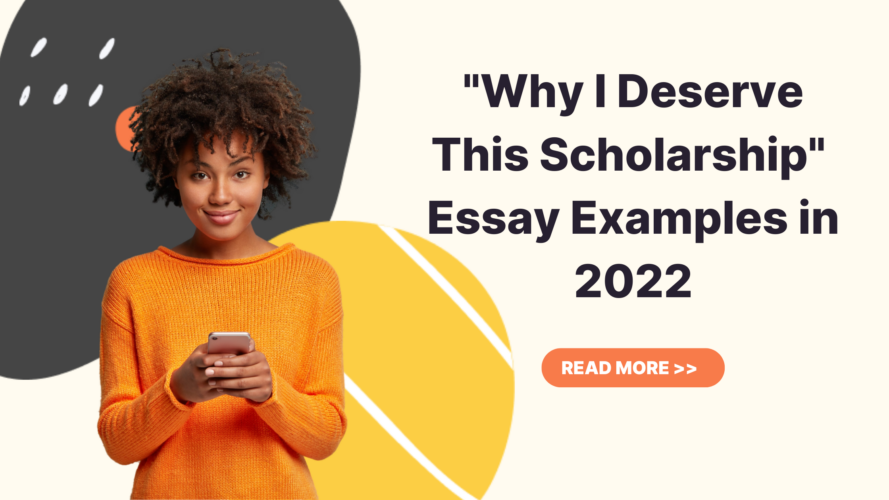
Get our best scholarship practices, insights & tips delivered to your inbox
Thank you for subscribing!
One of the most popular scholarship essay questions is “Why do you deserve this scholarship?” Answering such a question can be difficult because you don’t want to sound too needy or greedy. Your essay must stand out from the competition while still being humble and appreciative. Check out these essay writing tips, along with a scholarship essay sample about why I deserve the scholarship.
Tips for writing a “Why do you deserve this scholarship?” essay
Your essay will be unique to your experiences, but there are some general guidelines you should follow. Here are tips for writing a “why I’m deserving scholarship” essay:
- Explain how the scholarship money would contribute to your long-term goals. You’re asking the scholarship committee to invest in your future. They want to ensure their investment goes to a worthy cause. Explain how your education will play a role in your career and overall goals after graduation.
- Focus on the purpose of the scholarship. While writing your essay, keep in mind what the scholarship is for and where it comes from. Tailor your response to the scholarship so it resonates with the review committee.
- Don’t be afraid to promote yourself. This may be your only chance to tell the committee about your achievements. Showing your past success will instill confidence about your future success.
- Use a thesis statement, just like you would with any other essay. You should refer back to the thesis throughout the essay and tie it into the conclusion. If you have trouble creating the thesis at the beginning, write the rest of the essay first. Read through, see what stands out the most, and then write an intro with a cohesive thesis.
- When explaining obstacles in your life, focus on how you overcame them. Show that you’re a problem solver, able to persevere through any situation. You can mention difficulties from your past, but turn the attention to what you did as a result of them.
- Avoid generalizations. Generic statements like “I deserve this because I am a hard worker” aren’t enough. Every applicant is a hard worker, has ‘good grades,’ etc. What makes you different, special and memorable? That should be the topic of your scholarship essay.
- Support your statements with examples. Instead of saying, “I’m a hard worker,” say, “I upheld two jobs while I was in high school to support my family, and I still maintained a 3.75 GPA.” This is no longer a generalization. It is an achievement specific to your life and upbringing.
- Use positive language. Phrases like ‘well-prepared,’ ‘qualified candidate’ and ‘specialized training’ showcase achievements in a positive light. Even in a negative situation, show the positive way you got through it.
- Avoid words like ‘very’ and ‘really.’ You can typically find a one-word substitute that sounds more professional. Very hard turns into difficult. Very good becomes exceptional. Here is an excellent guide for modifiers that replace very .
- Take a one-day break before you edit. Once you have a solid draft written, do not jump straight into editing. Wait a day before looking over your essay. This will let you read the essay with fresh eyes so you can catch inconsistencies, grammar mistakes, and more.

Example 1: Why I deserve this scholarship essay (100 words)
With a 100 word scholarship essay, you need to jump into the thesis as quickly as possible. There is not enough space for a lengthy introduction. Use concise language, and showcase your biggest achievements/goals. You should have enough sentences to break into two small paragraphs, though one may only be two to three sentences.
The fastest path to earning scholarships
Simplify and focus your application process with the one-stop platform for vetted scholarships.
I believe I deserve this scholarship because I am an innovative problem solver. As the student council president, I helped re-organize my school library to better accommodate students’ needs. I worked with staff to categorize books to better reflect current school subjects. I will use the same leadership mindset to obtain my business degree with a focus on project management. My goal is to work in construction management to increase efficiency in low-income housing development. With this scholarship and the need-based grants I will receive, I can complete my education and continue to solve problems within my community.
Word Count: 98
Example 2: Why I deserve this scholarship essay (250 words)
A 250-word scholarship essay usually consists of 4-5 paragraphs. The introduction can have a short lead-in, but it should arrive at the thesis quickly. The body paragraphs should support the assertion made in the first paragraph (the reason you deserve the scholarship). The conclusion should summarize the essay collectively, and it may include a statement of appreciation.
One of the most debated topics in America is how to provide affordable healthcare to the masses. I believe the answer lies in accessible healthcare providers. Nurse practitioners often go unappreciated and unrecognized for their versatility and value in the medical profession. With this scholarship, I could continue my training to become a nurse practitioner and provide attainable medical services to underserved communities. Growing up in a small Montana farming town, the closest hospital was 45 minutes away. The only local family doctor charged whatever he wanted because he was the sole provider. My parents relied on home remedies to treat any ailment my brother and I developed. This is when my passion for medicine first took form. Minimal medical care was not a concern until my father went to the hospital for severe stomach problems. These were the result of Crohn’s disease, a condition that can be managed with treatment. Because my father had not been to the doctor in years, the flare up was highly aggressive. It took months to get it under control and get him on preventative medication. I decided to go to college to help people like my father. As a nurse practitioner I can practice medicine without charging a fortune for my services. I plan to serve in rural communities where hospitals and doctors are limited or non-existent. I am grateful to be considered for this scholarship opportunity, and should I be selected, I will use it to advance my medical education.
Word Count: 248

Example 3: Why I deserve this scholarship essay (500 words)
With a 500-word scholarship essay, you have room to tell your story and create an experience for the reader. Use several introductory sentences to lead into your thesis and set the tone for the essay. The body paragraph should flow in a logical manner, most often chronologically. Then the conclusion should re-emphasize the thesis and leave the scholarship committee with something to remember.
Winston Churchill once said, “Success consists of going from failure to failure without loss of enthusiasm.” And while I never define my obstacles as ‘failures,’ I mark my success by my repeated perseverance through adversity. I have faced several challenges over the years, from dyslexia to homelessness; yet I continued to earn exemplary grades and graduate at the top of my class. I deserve this scholarship because I have the strength and determination to achieve my goals, no matter what hurdles I have to overcome. I was not born a gifted student. Testing and assignments were always difficult for me, whether I studied or not. In second grade, my parents had me tested for learning disabilities. The psychologist said that I had a hyperactivity disorder and prescribed medication to suppress my energy. After two years abiding by that treatment, I was re-evaluated and diagnosed with dyslexia. This helped me get the treatment I needed, and I finally made progress in school. Shortly after I learned how to study with dyslexia, my father lost his job. He was the sole breadwinner for the household, and I was soon on the street with my mother and two younger siblings. I got a job in newspaper delivery, one of the few fields that will hire a 12-year-old. My father found odd jobs to bring money to the family, and together we were eventually able to pay for a two-bedroom apartment to live in. I was valedictorian that school year, and I maintained a perfect attendance record. Like my father, I knew I had to do whatever was necessary to succeed and thrive. In high school, I developed an interest for psychology. I noticed patterns in behaviors, both in myself and in the people around me. I asked my child therapist, the one who officially diagnosed me with dyslexia, if I could work at his clinic over the summers. He allowed me to intern at his counseling center my junior and senior year, and I gained valuable insight into the business side of psychology. I am now entering the second year of my psychology degree. I plan to complete my bachelor’s degree and earn a Doctorate of Neuropsychology in the years that follow. My focus is on psychological testing, specifically for children with autism or learning disabilities. I spent years struggling in school because of a preventable misdiagnosis. I want to ensure that other children do not face the same struggles in their future. Why do I deserve this scholarship? Because I have the passion and determination to become a trusted member of the psychological community. With my education, I can help children get the treatment they need at an early age, giving the best chance at finding their own success. You’re not just helping me get through college. You’re improving the quality of life for countless families to come. I appreciate your consideration, and I look forward to building a lasting relationship with your organization.
Word Count: 492
You Should Also Read…
How to Write a Scholarship Motivation Letter
Why Are You Applying to This Scholarship Essay (with Example)
How to Write a Scholarship Essay Introduction (With Example)
How to End a Scholarship Essay
How to Write a Great 250-Word Essay
How to Write a Great 500 Word Essay
5 People Who Should Review Your Scholarship Essays
- Scholarship Essay

Jennifer Finetti
As a parent who recently helped her own kids embark on their college journeys, Jennifer approaches the transition from high school to college from a unique perspective. She truly enjoys engaging with students – helping them to build the confidence, knowledge, and insight needed to pursue their educational and career goals, while also empowering them with the strategies and skills needed to access scholarships and financial aid that can help limit college costs. She understands the importance of ensuring access to the edtech tools and resources that can make this process easier and more equitable - this drive to support underserved populations is what drew her to ScholarshipOwl. Jennifer has coached students from around the world, as well as in-person with local students in her own community. Her areas of focus include career exploration, major selection, college search and selection, college application assistance, financial aid and scholarship consultation, essay review and feedback, and more. She works with students who are at the top of their class, as well as those who are struggling. She firmly believes that all students, regardless of their circumstances, can succeed if they stay focused and work hard in school. Jennifer earned her MA in Counseling Psychology from National University, and her BA in Psychology from University of California, Santa Cruz.
Related Stories View All

The Arkansas Scholarship Lottery

How to Get a Soccer Scholarship

Popular Application Essay Topics
Get started with scholarshipowl.
Simplify and focus your application process with the one-stop platform for vetted scholarships

IMAGES
VIDEO
COMMENTS
Here are some sample responses from one of ScholarshipsA-Z's student leaders. These well-written, powerful essays helped this student win scholarships worth over $1,000. The student's name has been changed to protect the student's identity. SAMPLE QUESTION 1: What are your career goals, and how will earning a college degree or certificate ...
Scholarship Essay Example #5. Questbridge Finalist essay earning $3,000 in application waivers plus $3000 in local scholarships by Jordan Sanchez. Prompt: Some students have a background, identity, interest, or talent that is so meaningful they believe their application would be incomplete without it.
Types of Scholarships Essay. Merit-Based Essays: Focus on academic achievements, leadership qualities, or artistic talents. Need-Based Essays: Highlight financial need and how the scholarship would support educational goals. Personal Statement Essays: Reflect on personal experiences, challenges overcome, and personal growth.
Yes, but make sure your essay directly addresses the prompt, respects the word count, and demonstrates the organization's values. If you plan ahead, you can save time by writing one scholarship essay for multiple prompts with similar questions. In a scholarship tracker spreadsheet, you can group or color-code overlapping essay prompts; then, write a single essay for multiple scholarships.
Create goals for the writing. For example, your goal in responding to an essay might be to: . Demonstrate personal traits in myself that are similar to the personal. traits of the person for whom the scholarship is named. (The Brower. Youth Award is given in honor of David Brower, to "honor his lifetime.
Scholarship essay examples about financial need, and more! We've included scholarship essay examples specific to schools, including UC Berkeley, as well as specific programs, like the SHPE scholarship. We'll also discuss the different types of scholarships you'll find on your scholarship search. Now, before we jump into our essay examples ...
There are a number of ways to hook the reader, including: Using startling statistics. Opening with a moving sentence. Making a strong statement. For an example of an engaging hook, say you are writing an essay about social media distraction. Perhaps you could open with: It might sound odd, but I love my flip phone.
Time away from a draft offers clarity. Read the draft as if you're the most skeptical person you can imagine. Look for opportunities to add detail, clarify, emphasize an idea, and delete irrelevant details. Rearrange a few times. Move the conclusion or the "so what" point to the beginning. Try bookending an anecdote with information about ...
Scholarship decisions are made very. quickly; you need to immediately. make yourself stand out. The judges can read all the "facts". about you on the application; the. essay is where they can discover. your heart and soul. The essay is an introduction to who you are, what you value, how you. see the world, what you hope to.
The first sentence of the essay is what makes the reader want to continue reading. Engage the reader by appealing to the senses. Create a sense of wonder in your essay, making the reader want to learn more about you. Keep the ending of the essay in mind as you craft the beginning.
The Bill Browning Scholarship Essay by Gabby DeMott. Award Amount: $10,000. Essay prompt: Discuss an accomplishment, event, or realization that sparked a period of personal growth and a new understanding of yourself or others. Why it was successful: Gabby DeMott shared her experiences with personal growth and overcoming fears in Germany.
Sample scholarship essay #2. By Alison G. ESSAY PROMPT: Submit an essay of 350-500 words to tell us ONE thing you are, or were, most concerned about regarding preparing for college, and what you've done, or are doing, to overcome the challenge. After living independently since I was fifteen, my biggest worry was not only paying for college, but learning how.
a. State why you need this scholarship b. State how this scholarship will help you. 5. Conclusion a. Highlight an item or two from your essay. b. Thank the judges (optional) Final Essay Tips • Always read over the instructions & requirements of the scholarship • Proofread your essay • Keep the essay simple & short (no more than one to two ...
Fund for Education Abroad Rainbow Scholarship $7,500 by Steven Fisher. Prompt: The Fund for Education Abroad is committed to diversifying education abroad by providing funding to students who are typically under-represented in study abroad. Please describe how you and/or your plans for study abroad could be viewed as under-represented.
Use the essay as an opportunity to showcase your personal experiences, like obstacles you might encounter, achievements, and aspirations. Highlight what sets you apart from other applicants. Be authentic and genuine in conveying your story, like overcoming personal failures. Start with a Compelling Introduction.
Why This Scholarship Essay Example Worked: 4. Going Merry Scholarship Success Story by Jesus Adrian Arroyo-Ramirez. Why This Scholarship Essay Example Worked: 5. Why College Is Important to Me by Nicole Kuznetsov. Why This Scholarship Essay Example Worked: 6. Financial Literacy for Hispanic Women by Rosaisha Ozoria.
Specific Examples: The applicant provides specific examples of challenges faced and initiatives undertaken as a leader, adding credibility to their claims. Lessons Learned: The essay discusses the lessons learned, emphasizing qualities such as communication, teamwork, and empathy, which are essential for effective leadership.
Short scholarship essay example: Tell us about yourself (100 Words) With 100 words, you can only focus on one or two elements of your life. Think about your biggest selling points - the things that show you are the ideal candidate. Start by introducing yourself and your educational status.
samples linked below are useful for demonstrating well-structured essays, it is the quality of the content (the clarity of your convictions and your own purposes for applying) that set the foundation for strong essays. Samples from others cannot do that work for you! Samples of Winning Essays On-line: Penn State University: https://www.e-
That said, it is of the utmost importance that you find a focus. First, think about both your goals and your values. Types of goals include: Career goals. Goals for personal growth. The type of friend you want to be. The change you want to make in the world. Values could include: Authenticity.
How to write a 100-word "career goals" essay. When writing a 100-word essay, you'll have to choose your content carefully. Since space is limited, you'll want to identify the most important details to include beforehand. First and foremost, make sure to clearly communicate your current pursuits.
Example 1: Why I deserve this scholarship essay (100 words) With a 100 word scholarship essay, you need to jump into the thesis as quickly as possible. There is not enough space for a lengthy introduction. Use concise language, and showcase your biggest achievements/goals. You should have enough sentences to break into two small paragraphs ...
I deserve this scholarship because I have the strength and determination to achieve my goals, no matter what hurdles I have to overcome. I was not born a gifted student. Testing and assignments were always difficult for me, whether I studied or not. In second grade, my parents had me tested for learning disabilities.